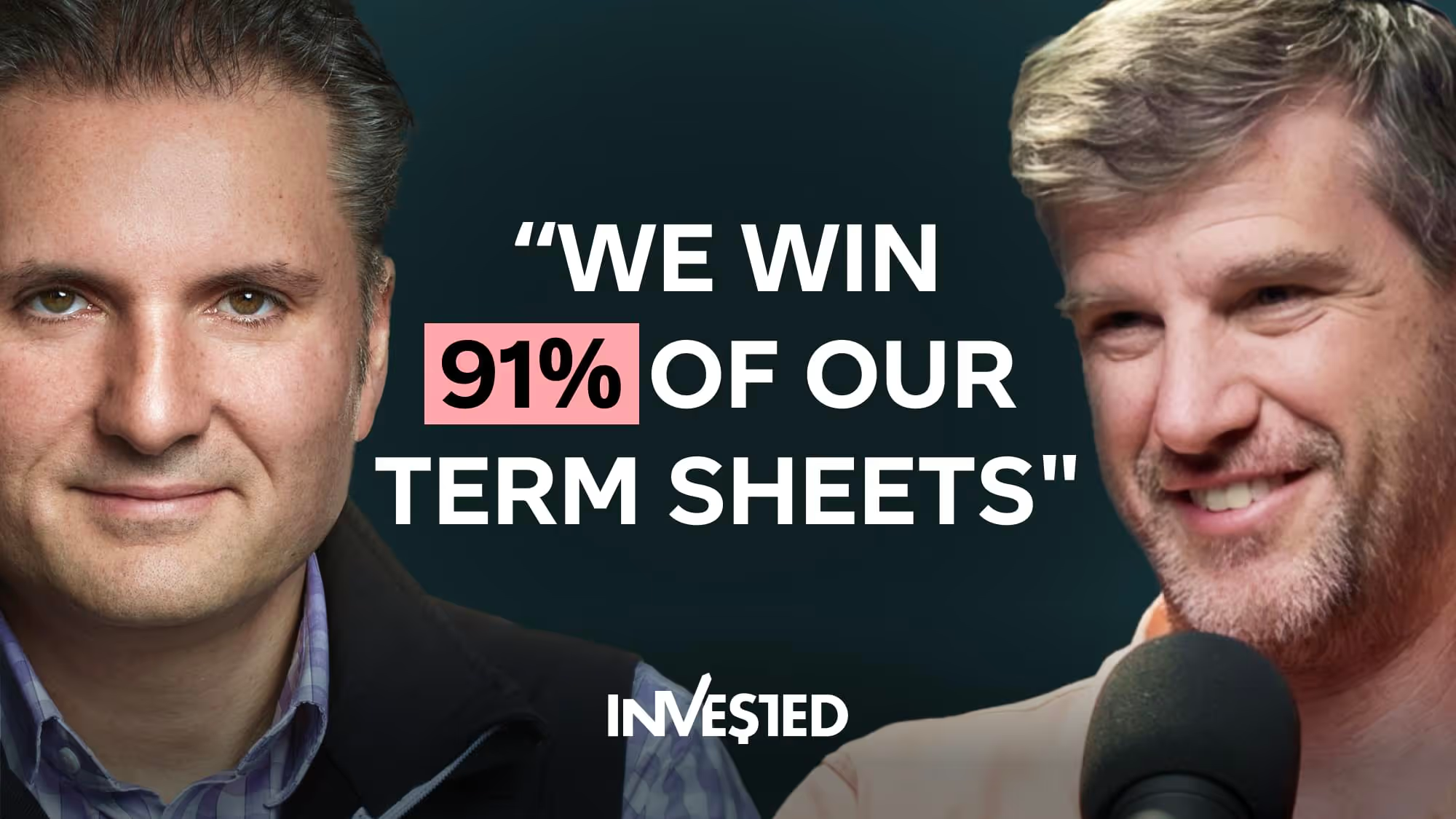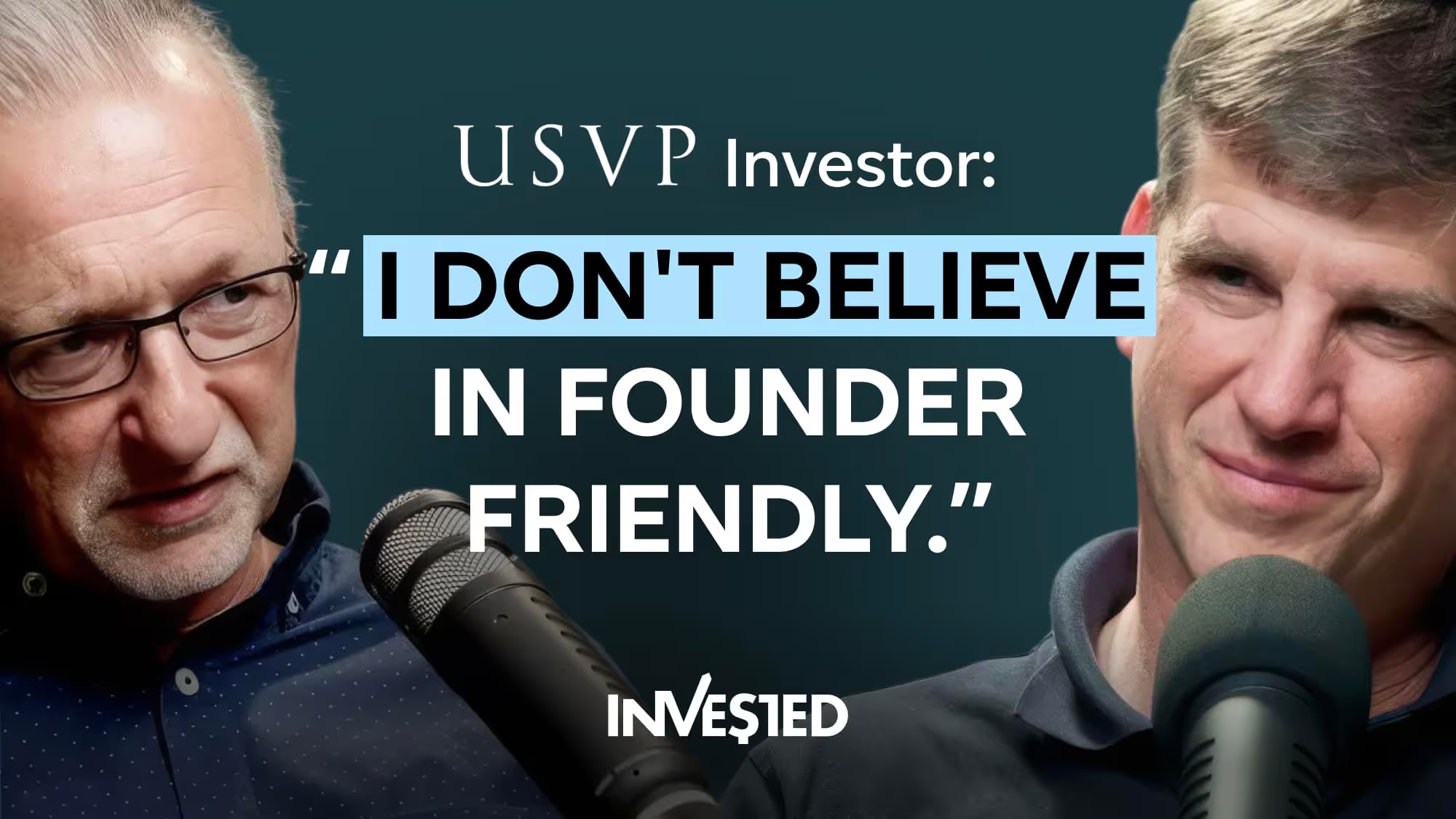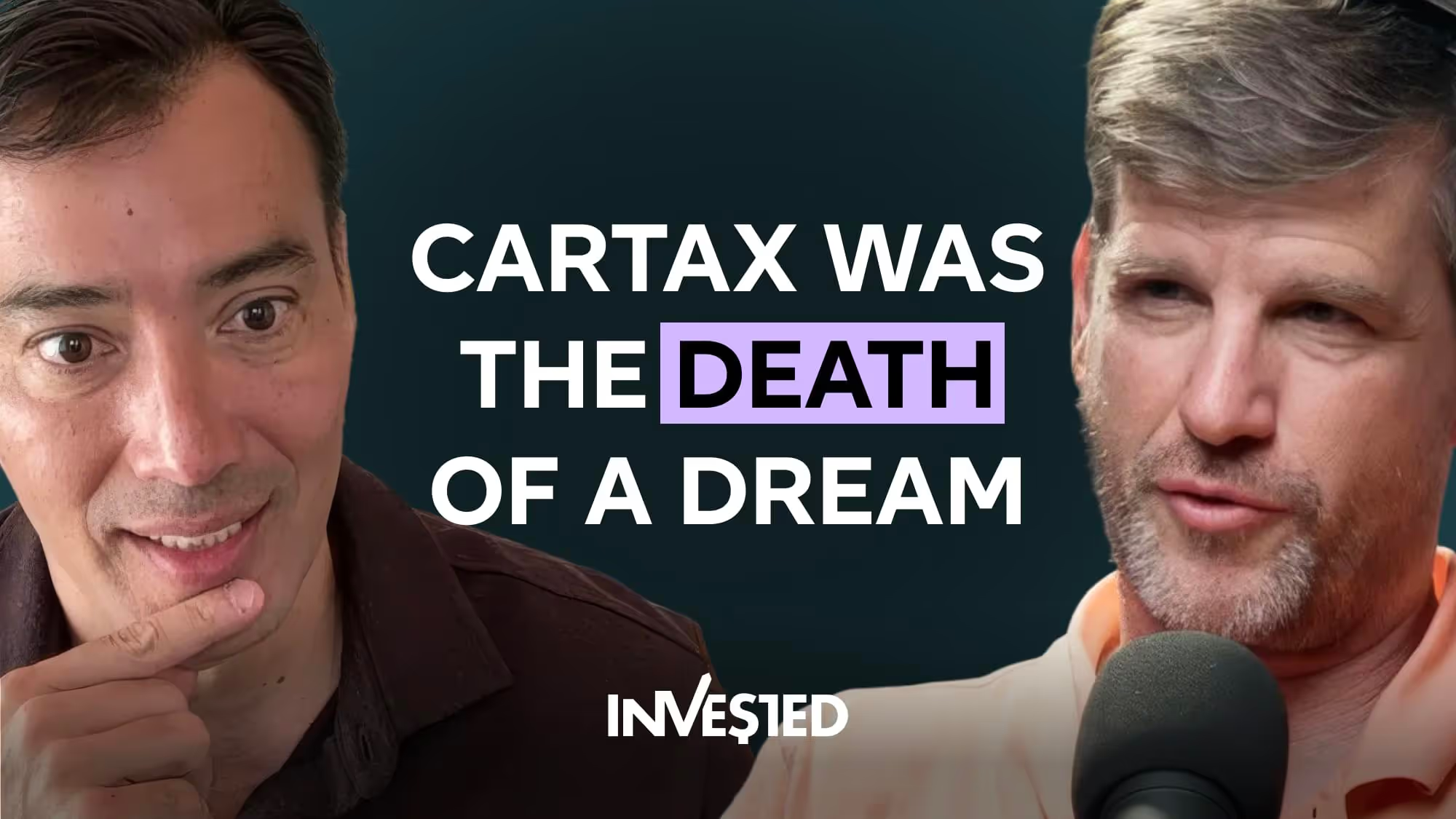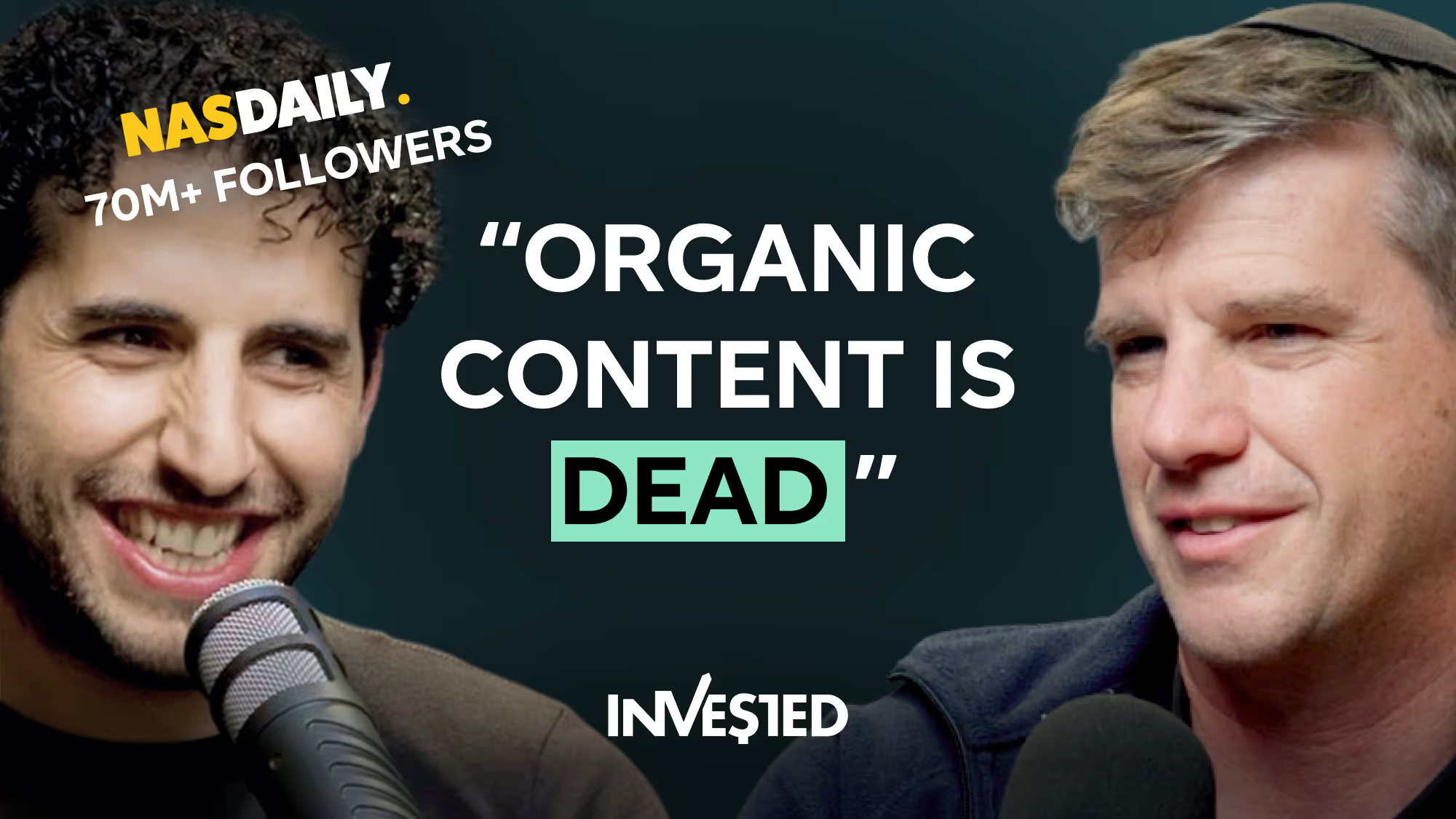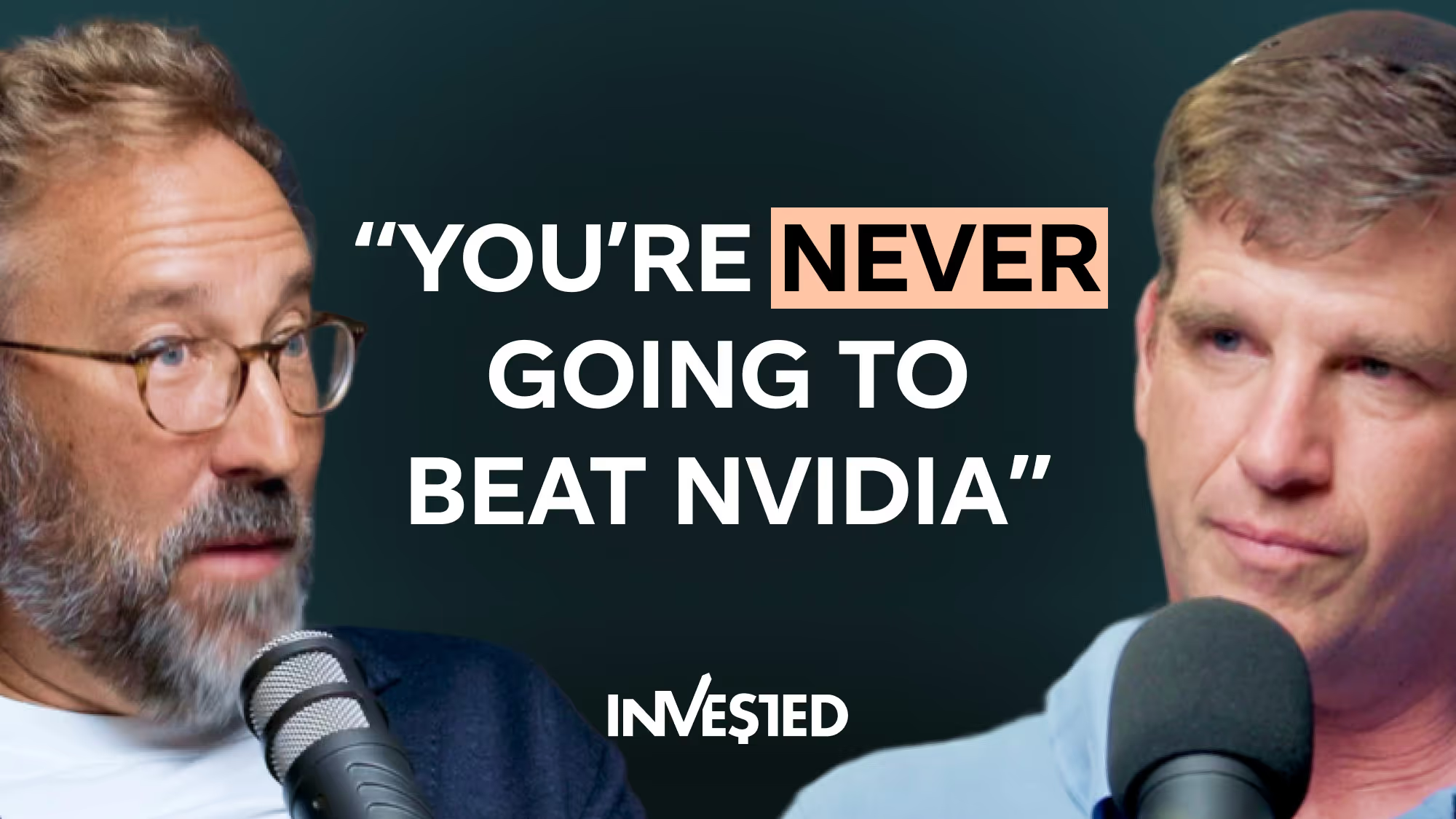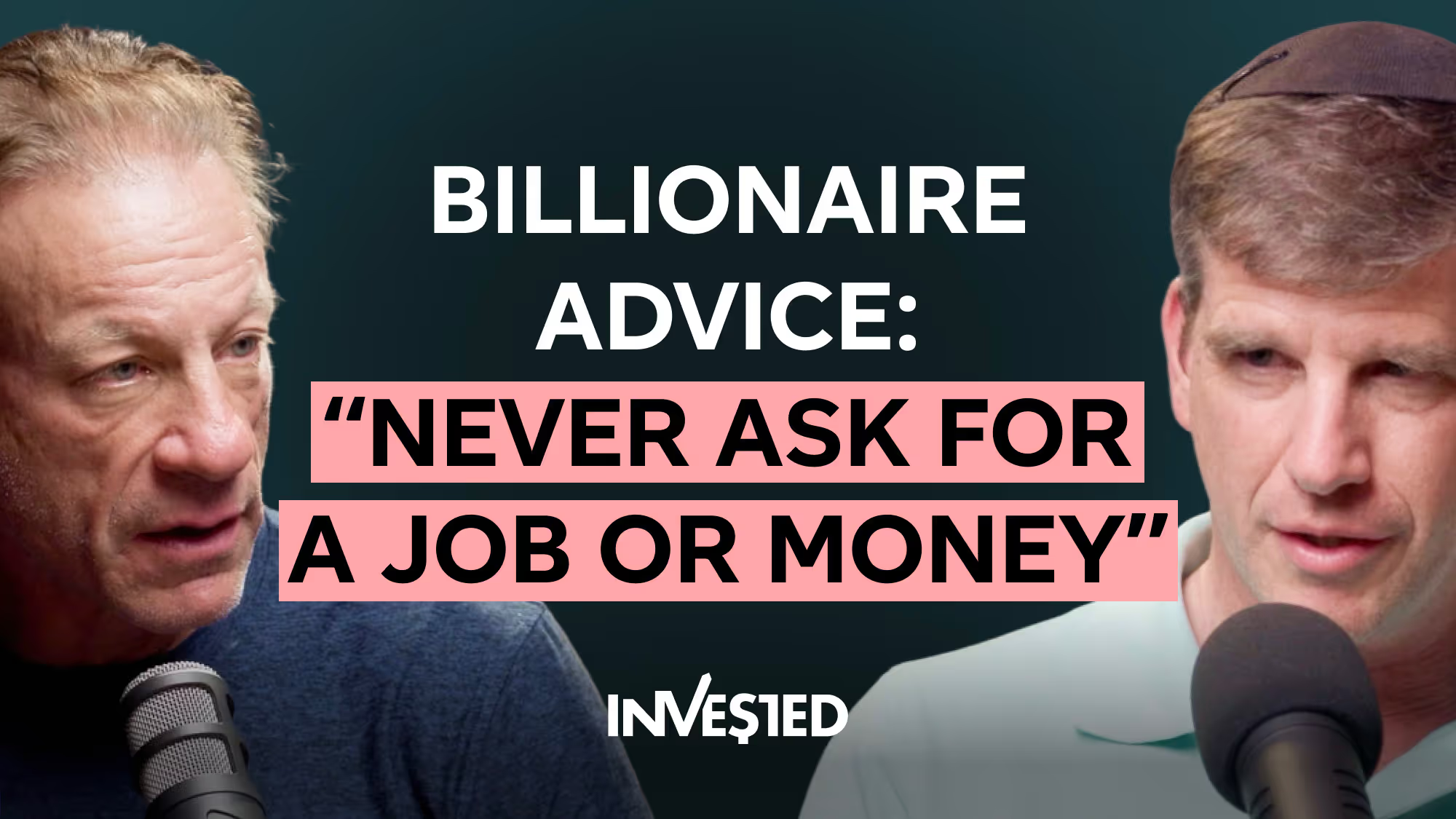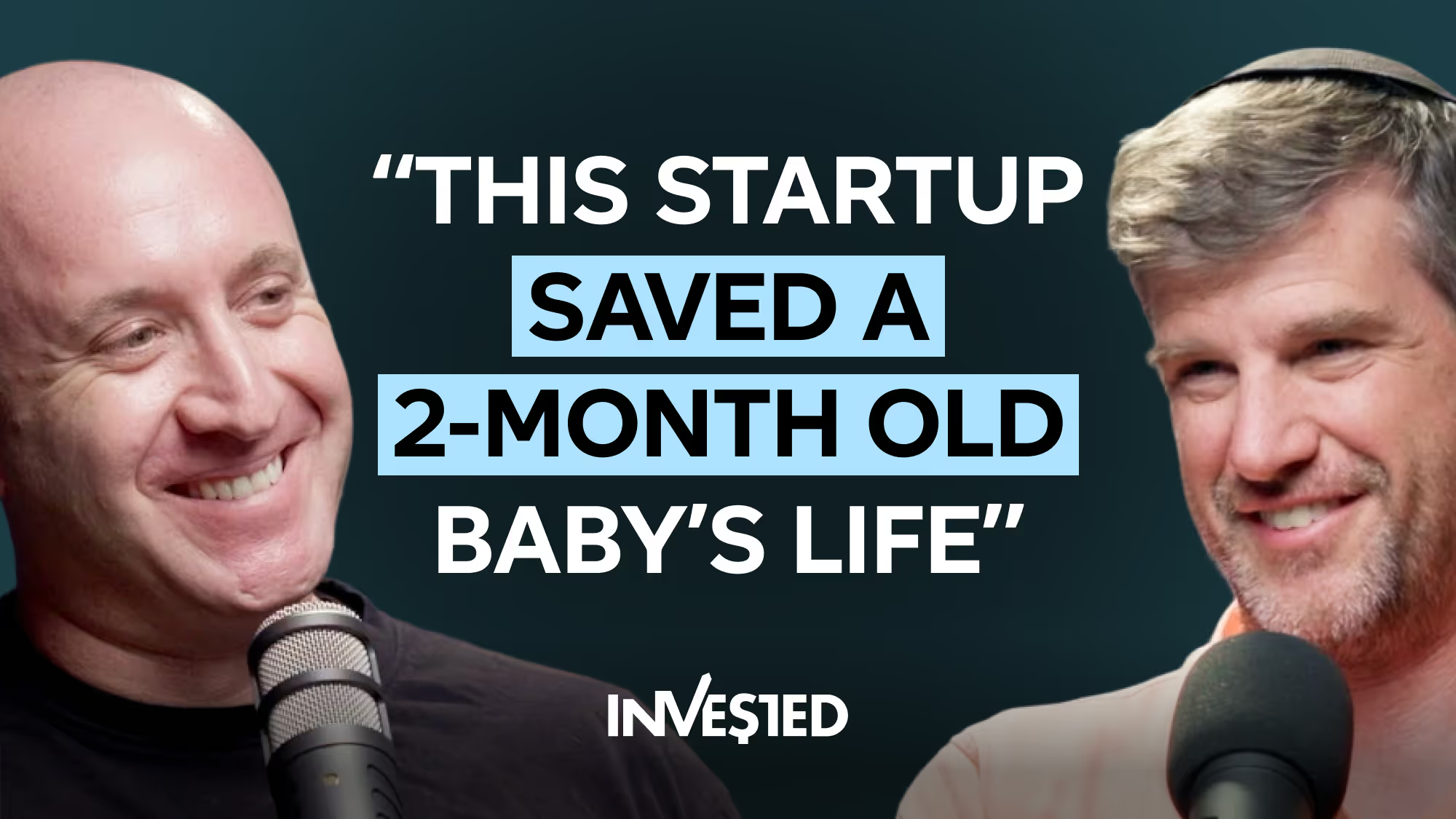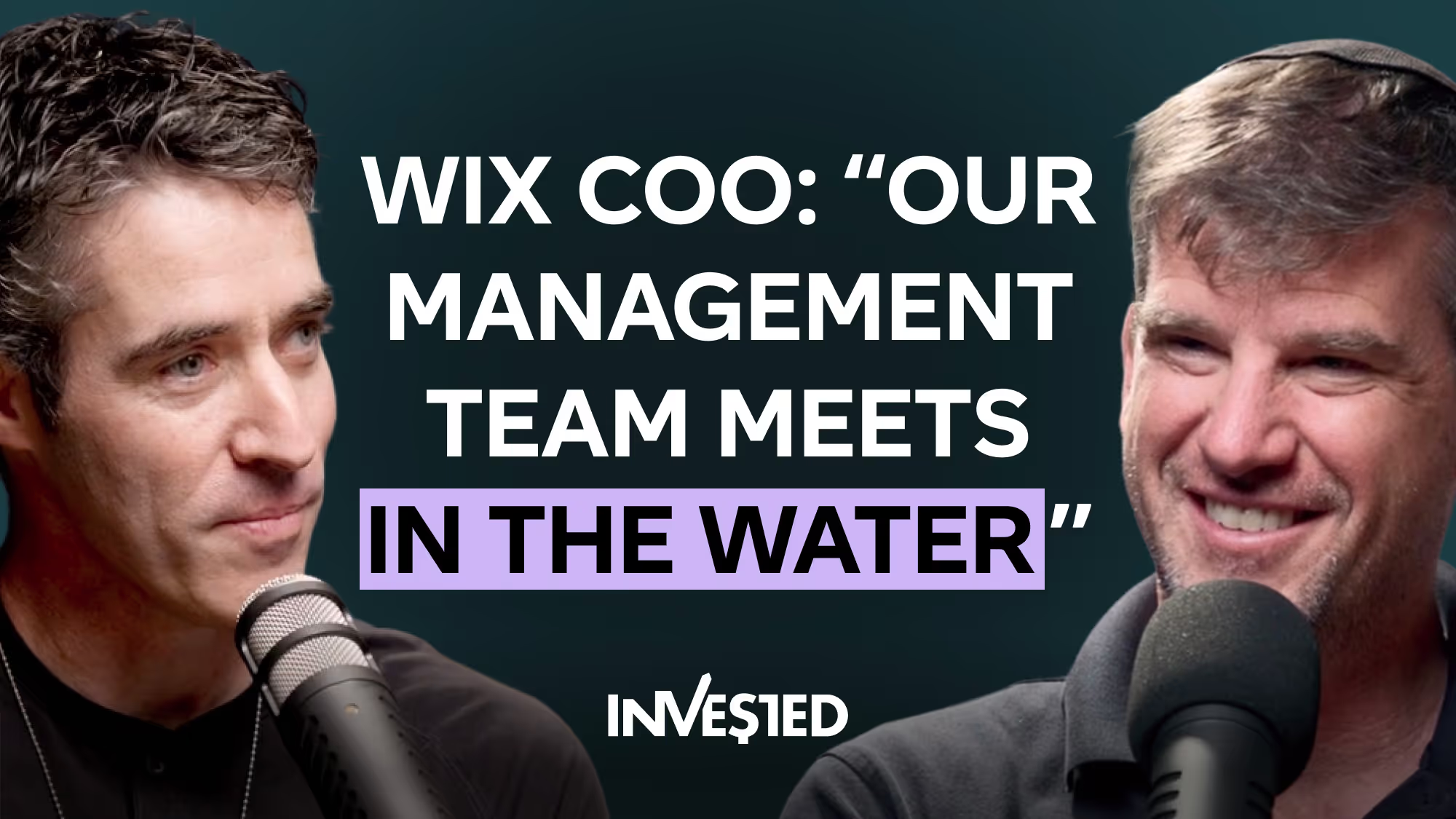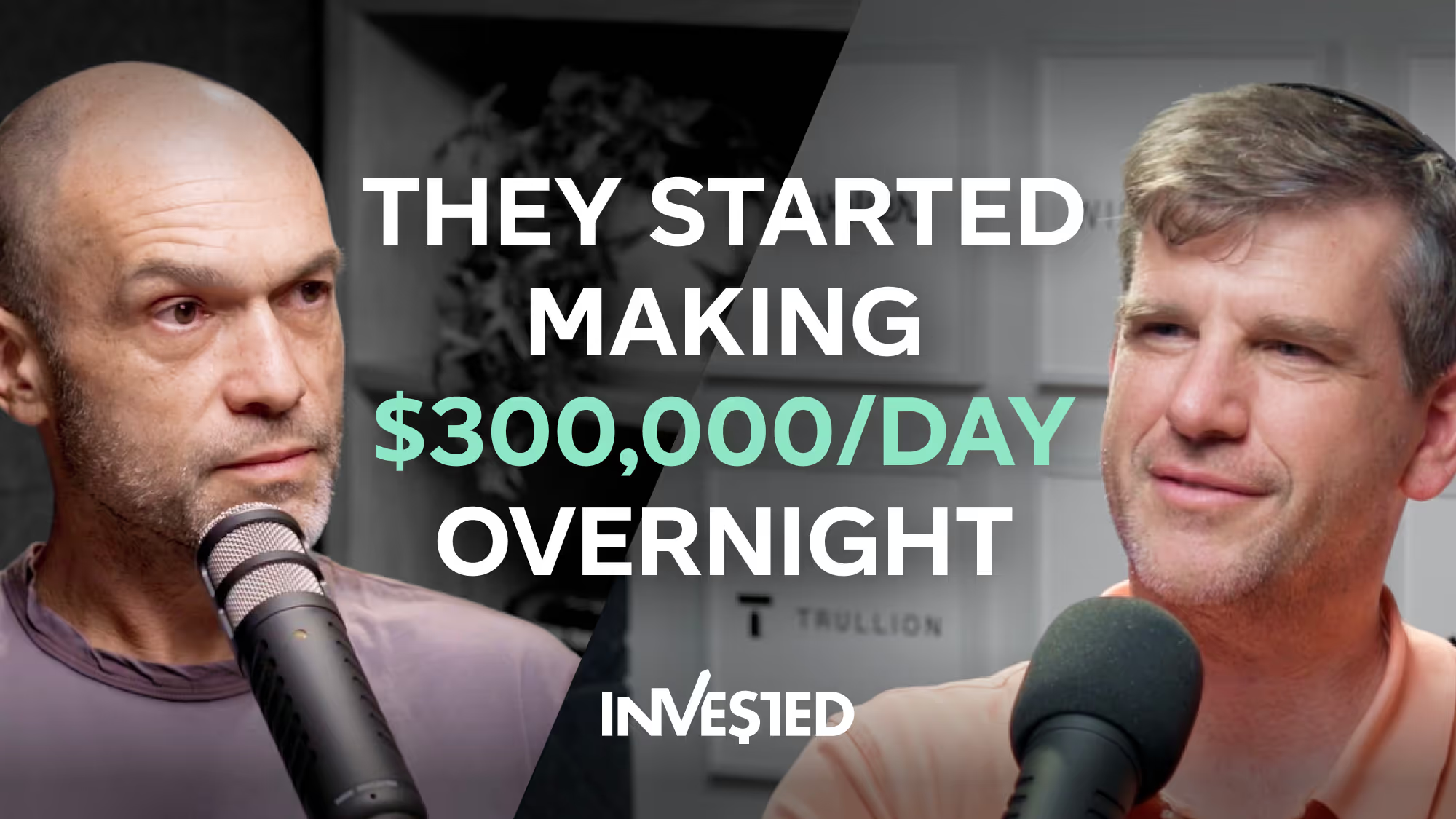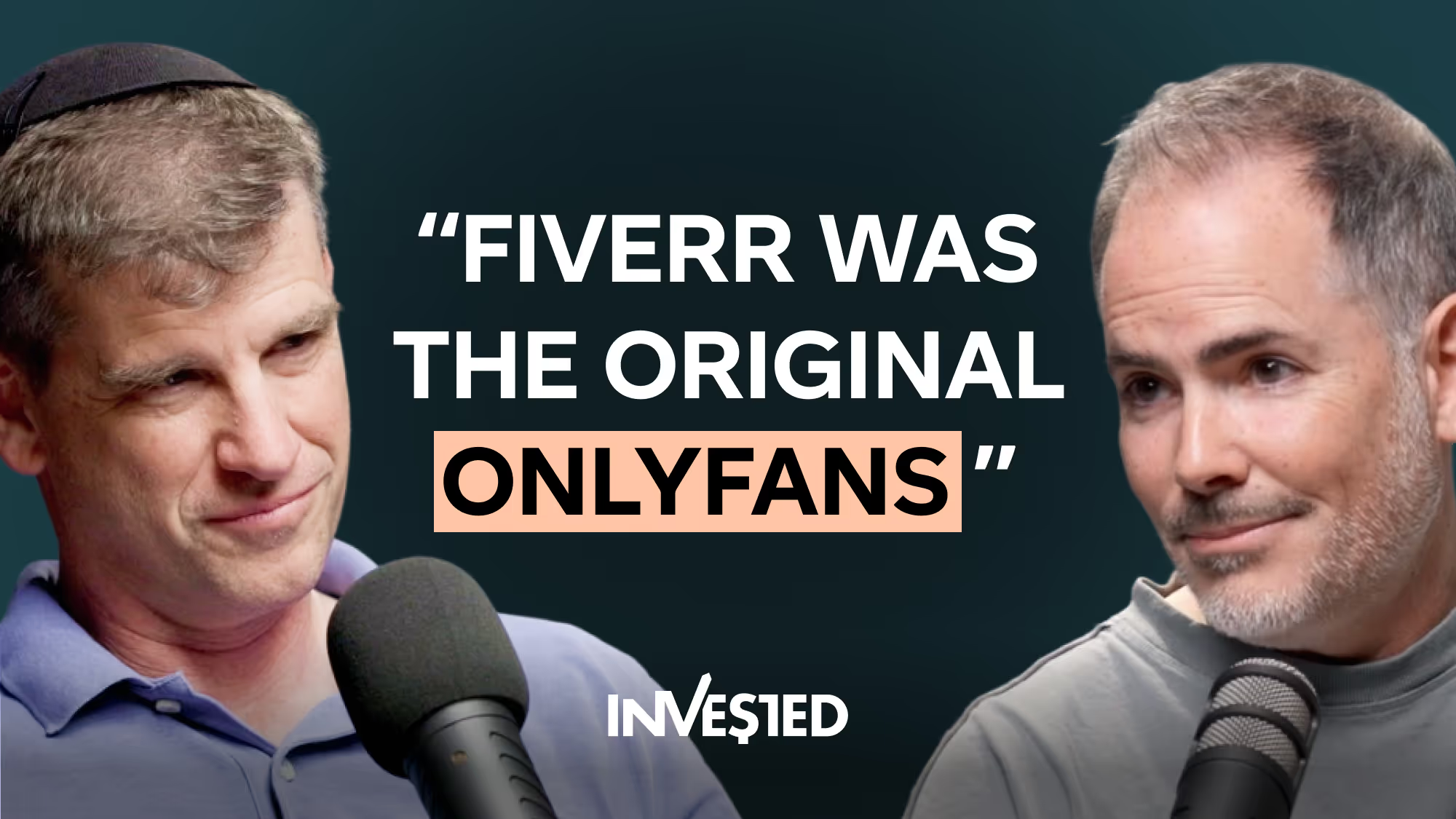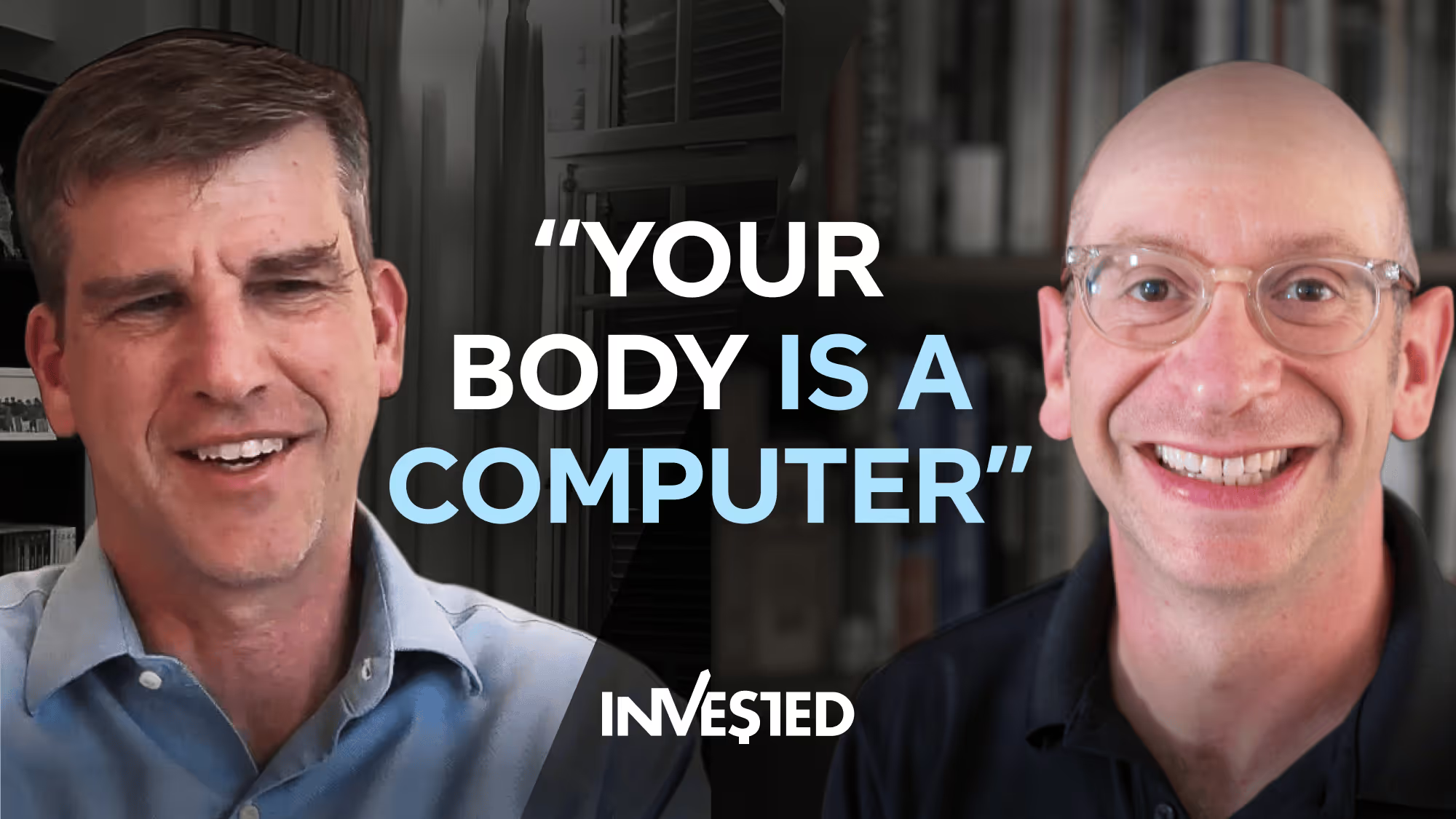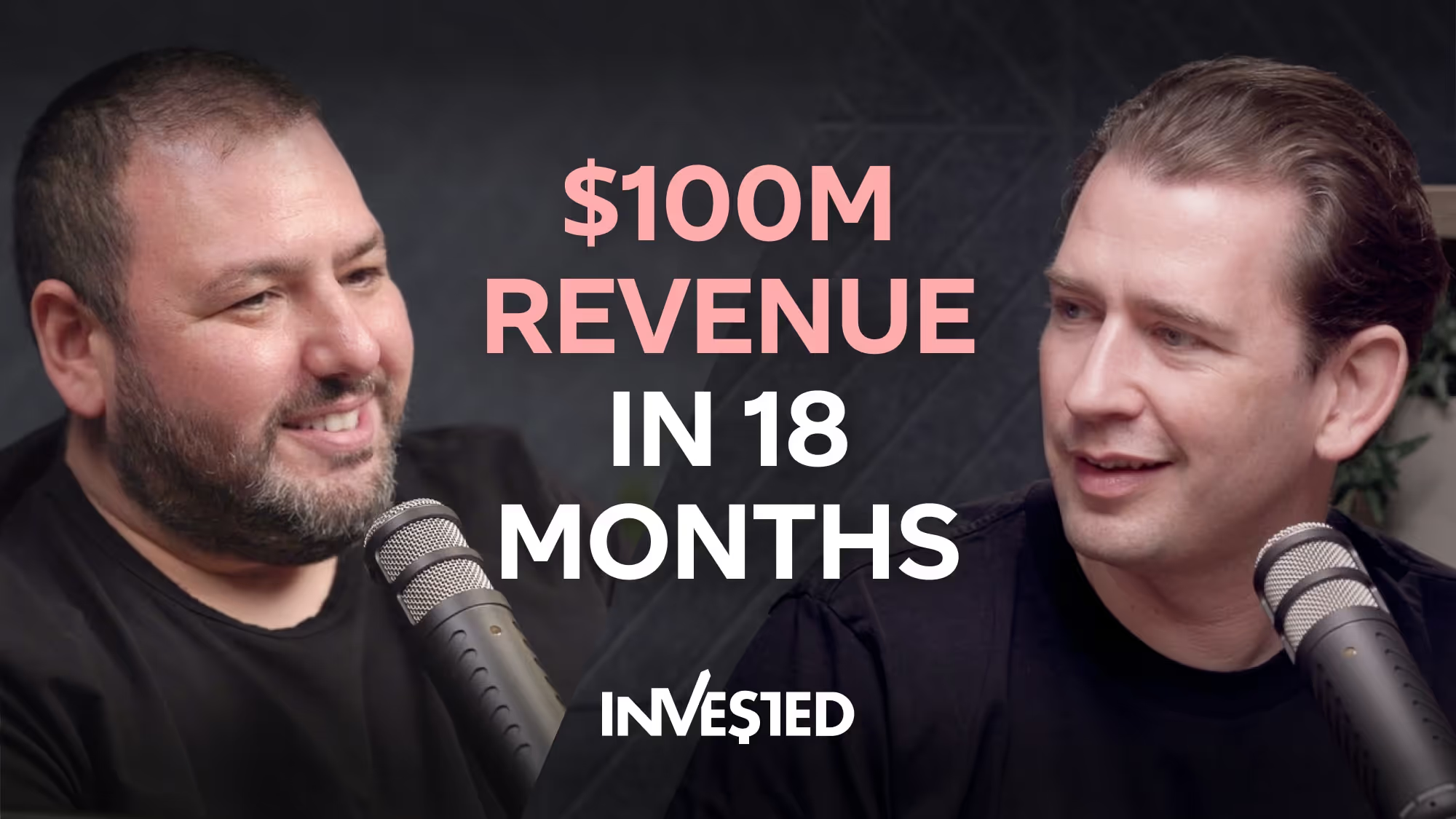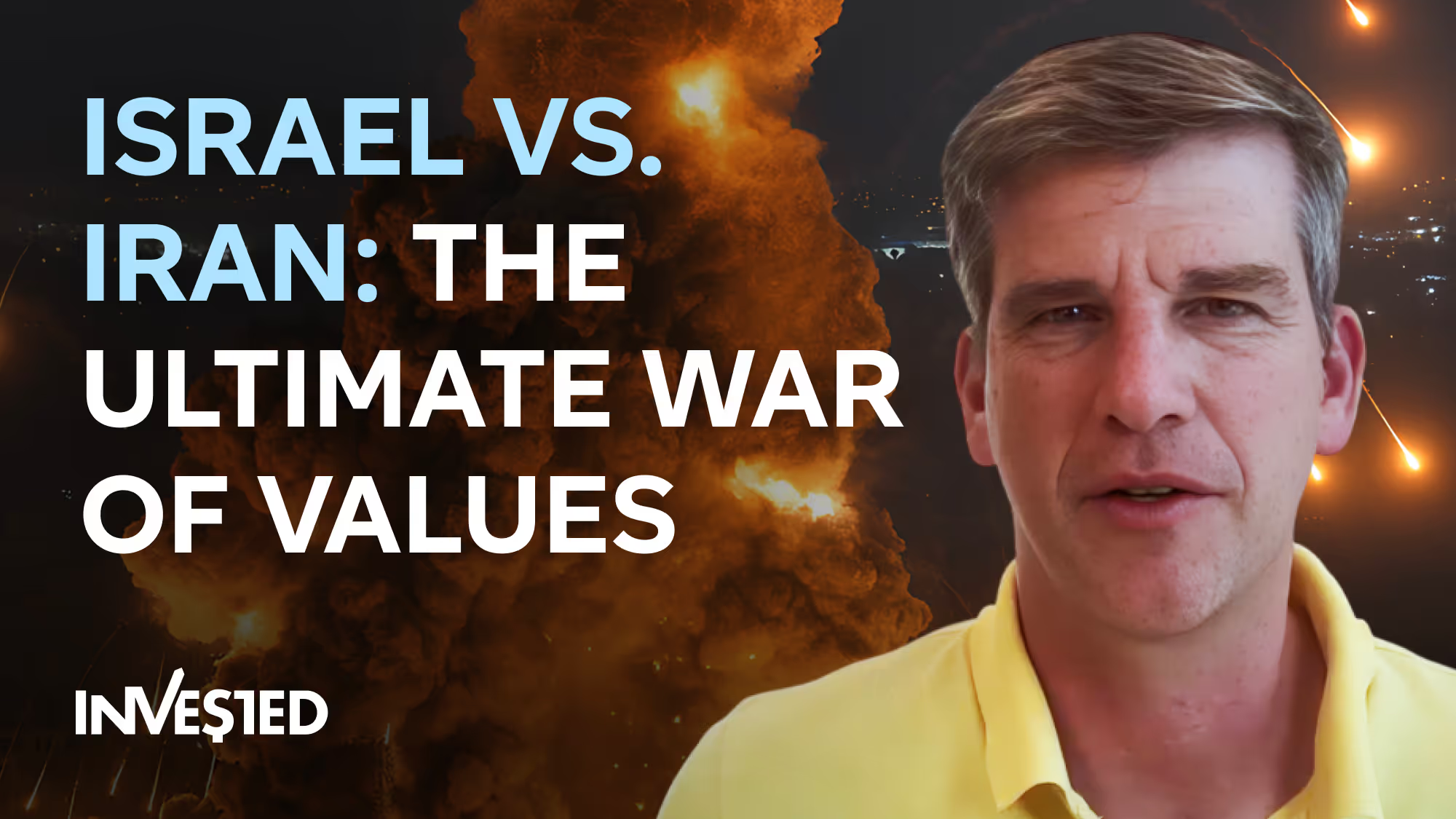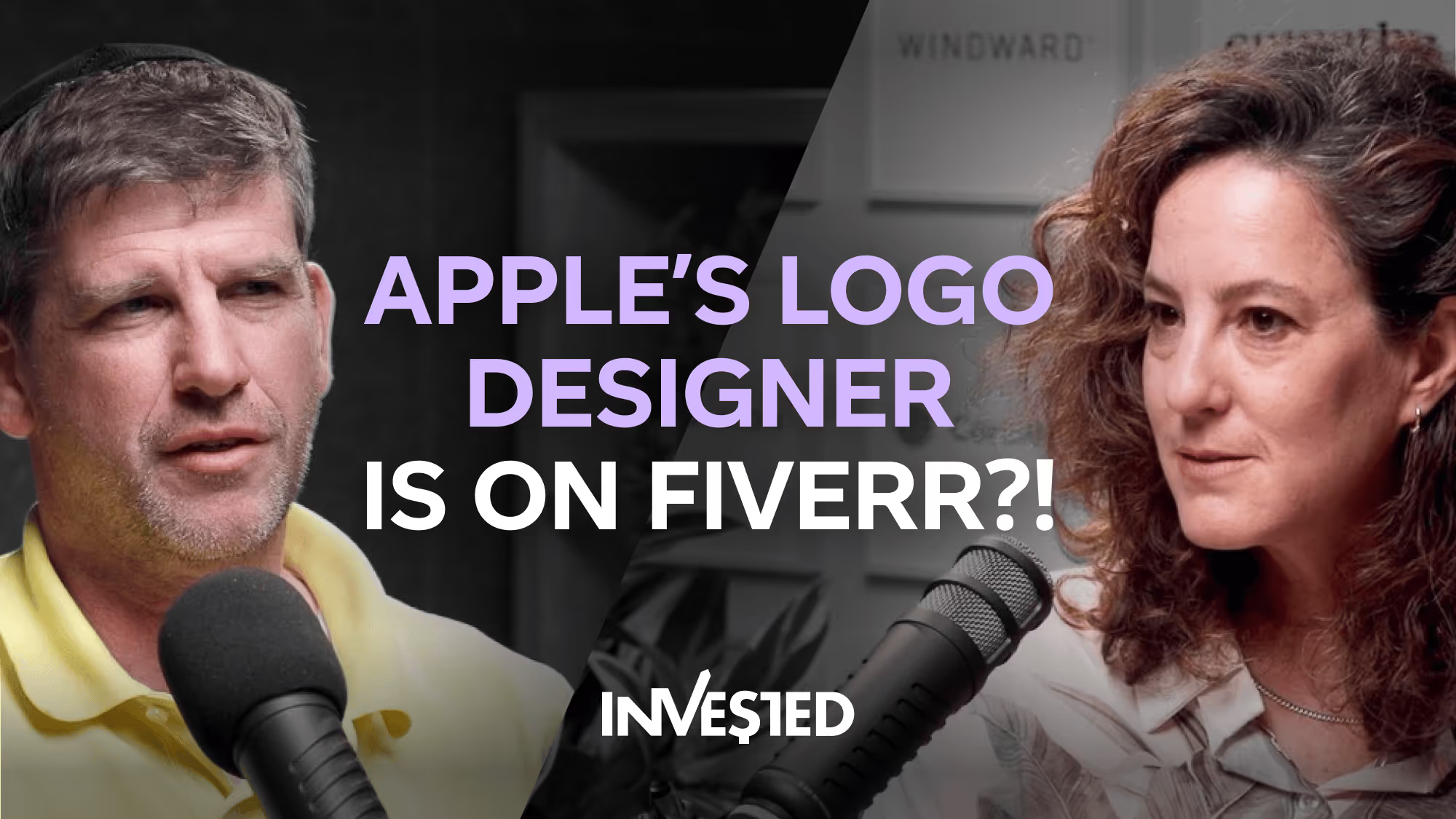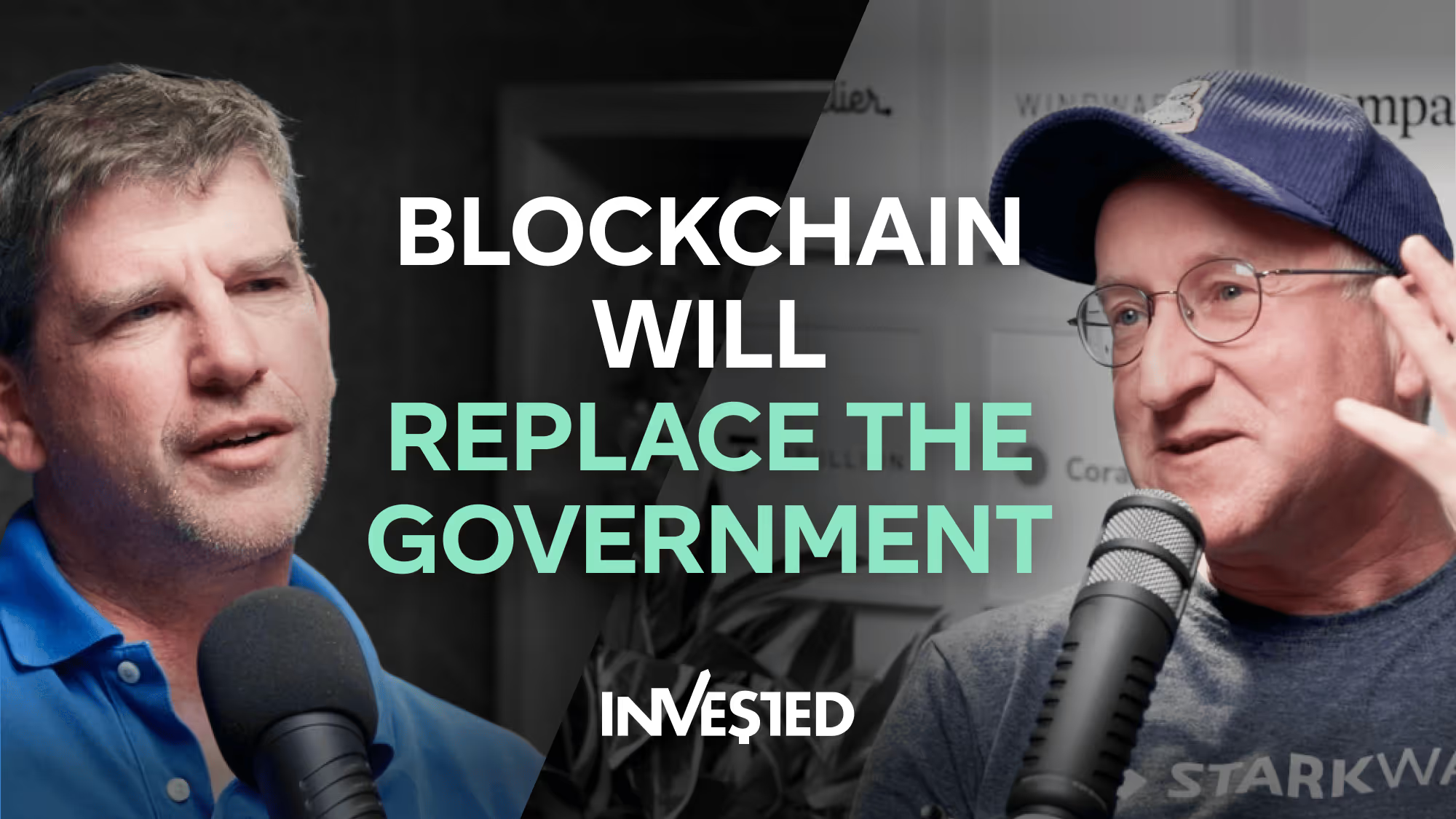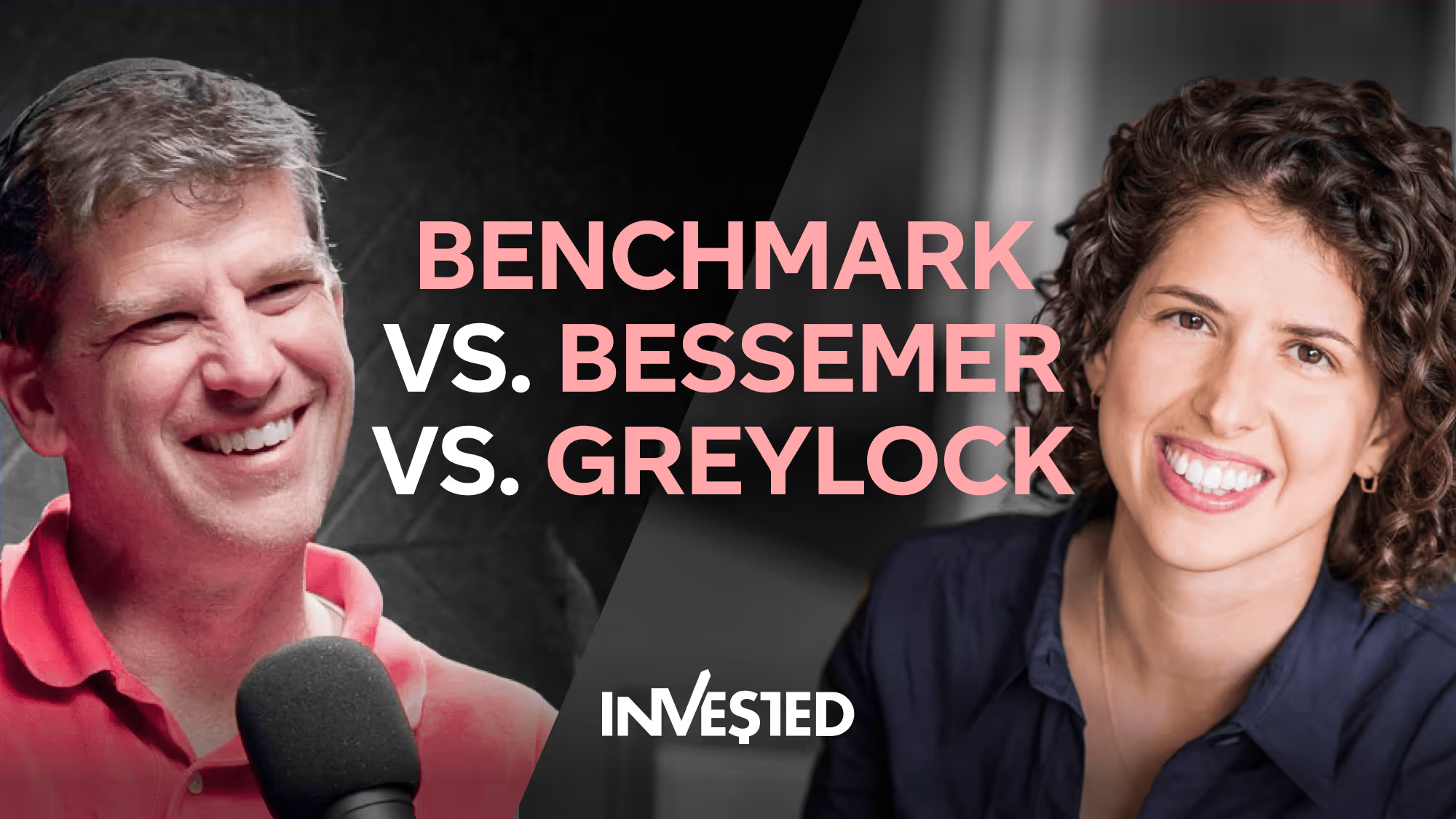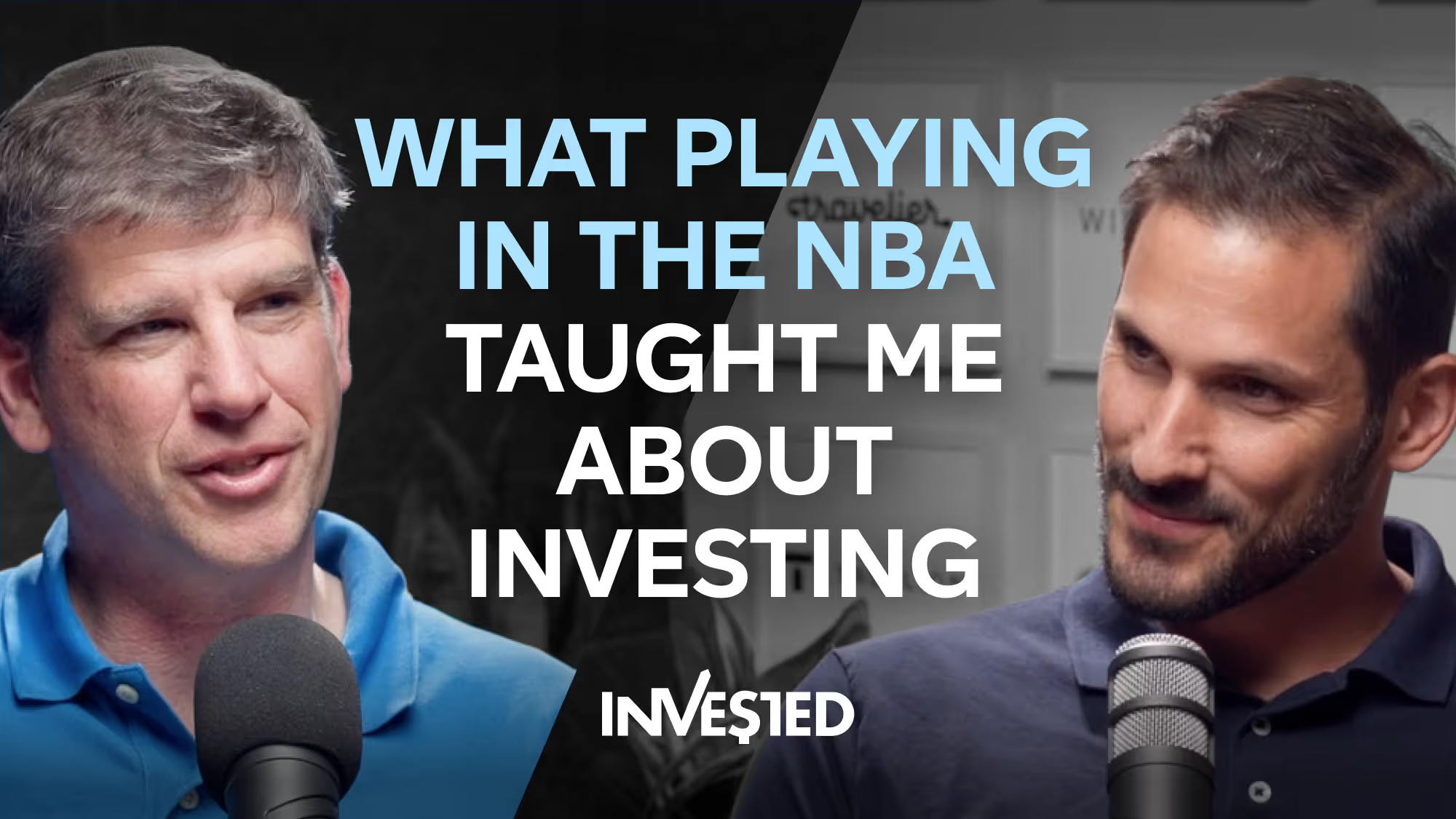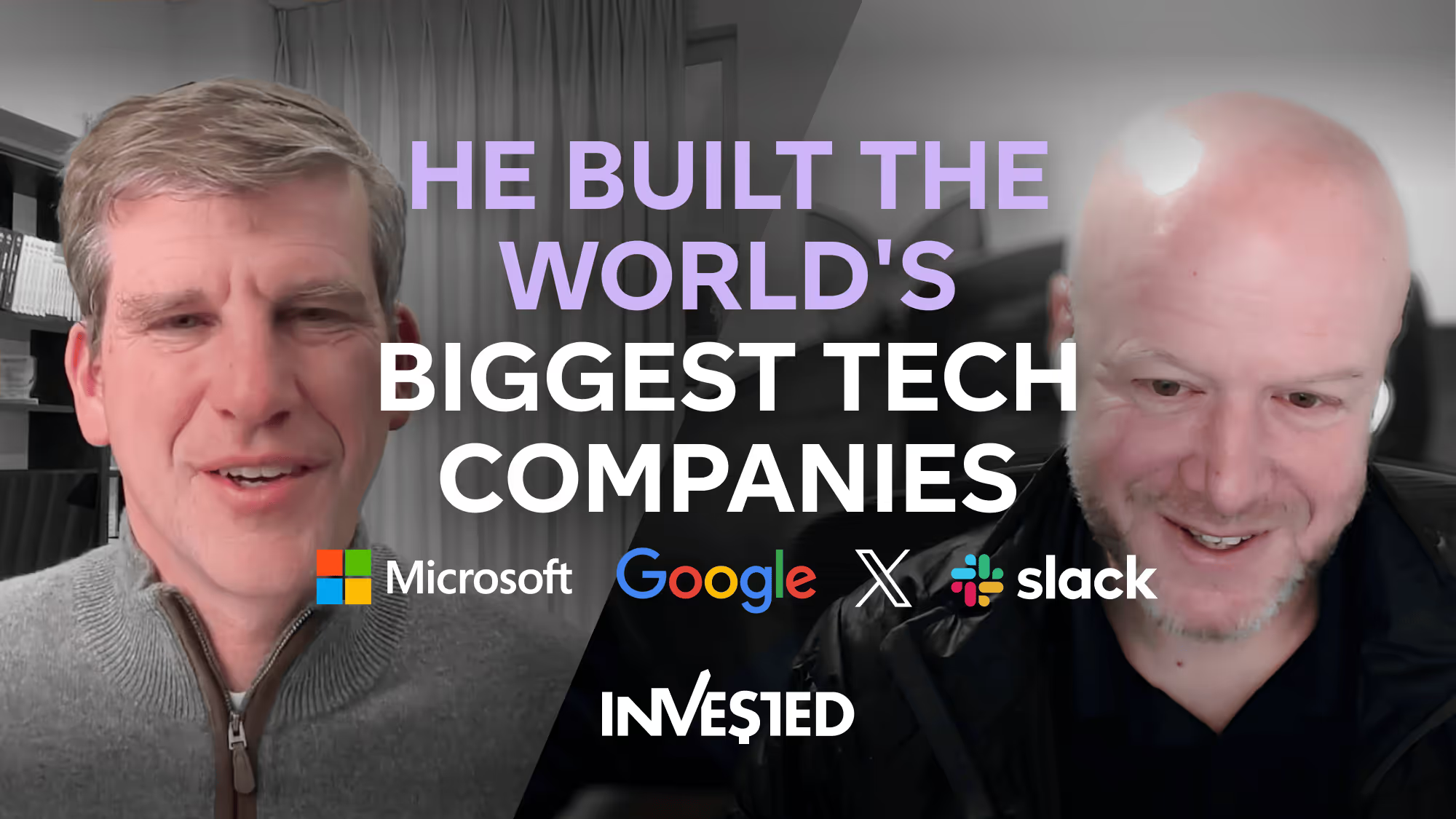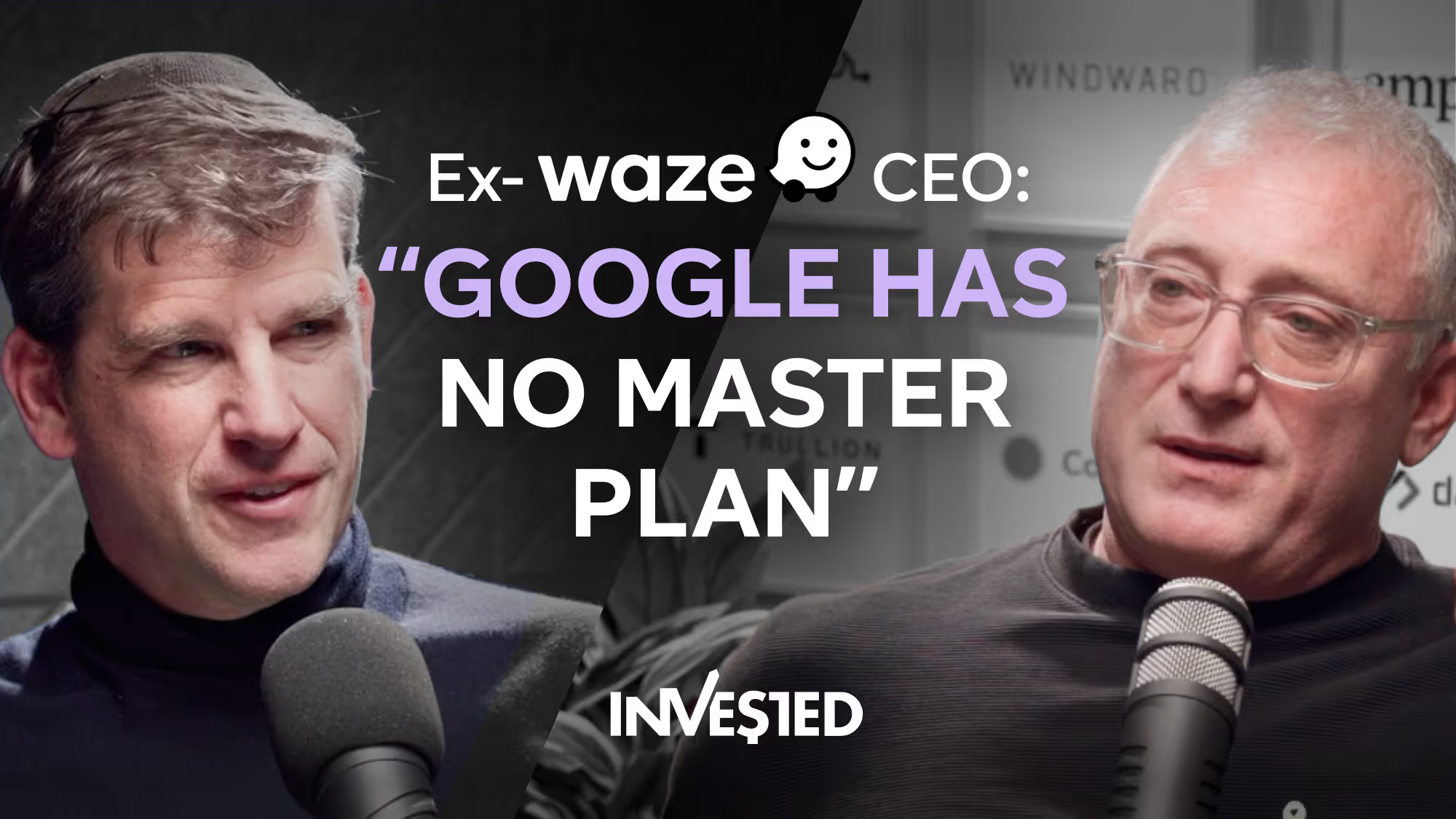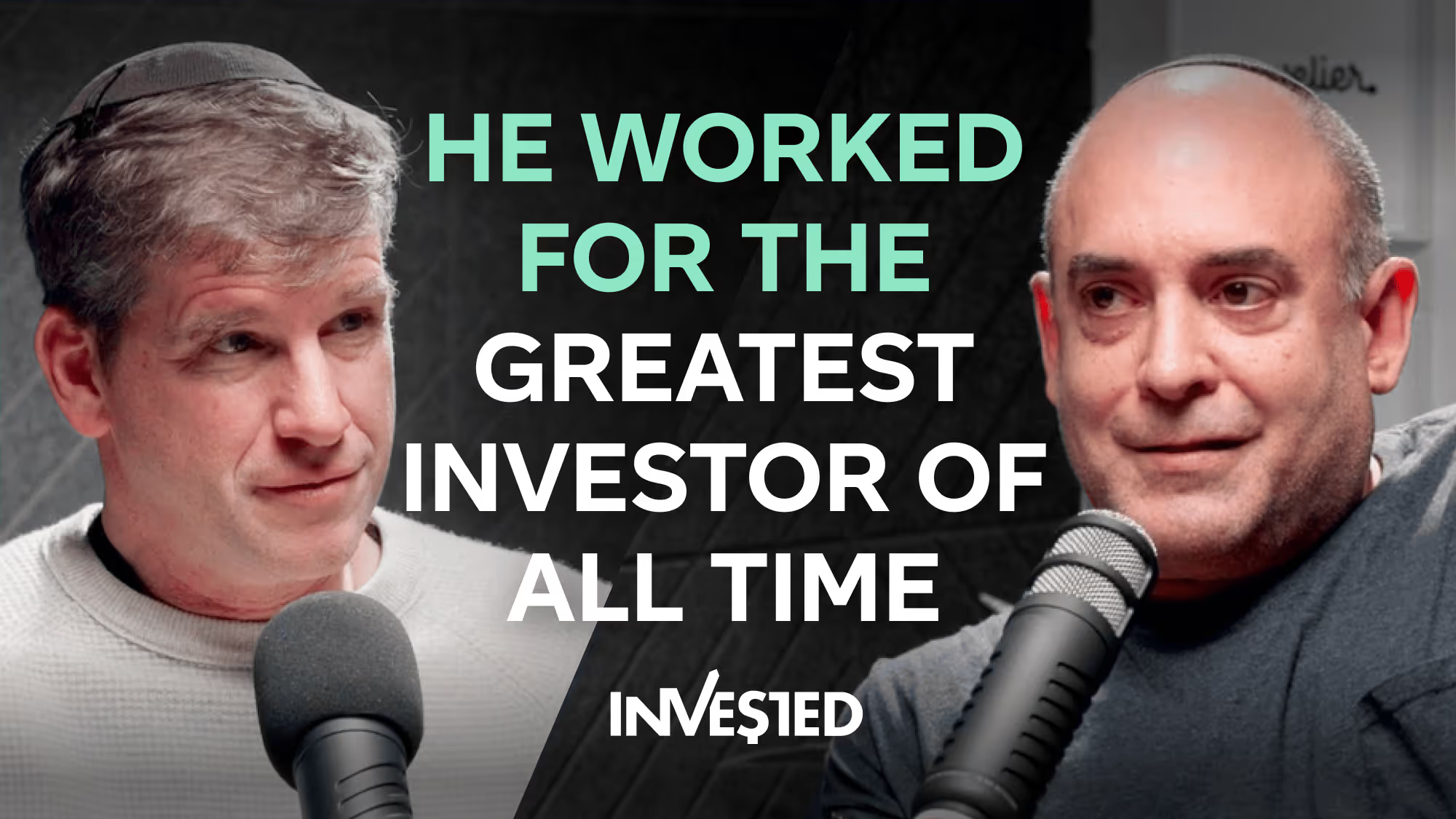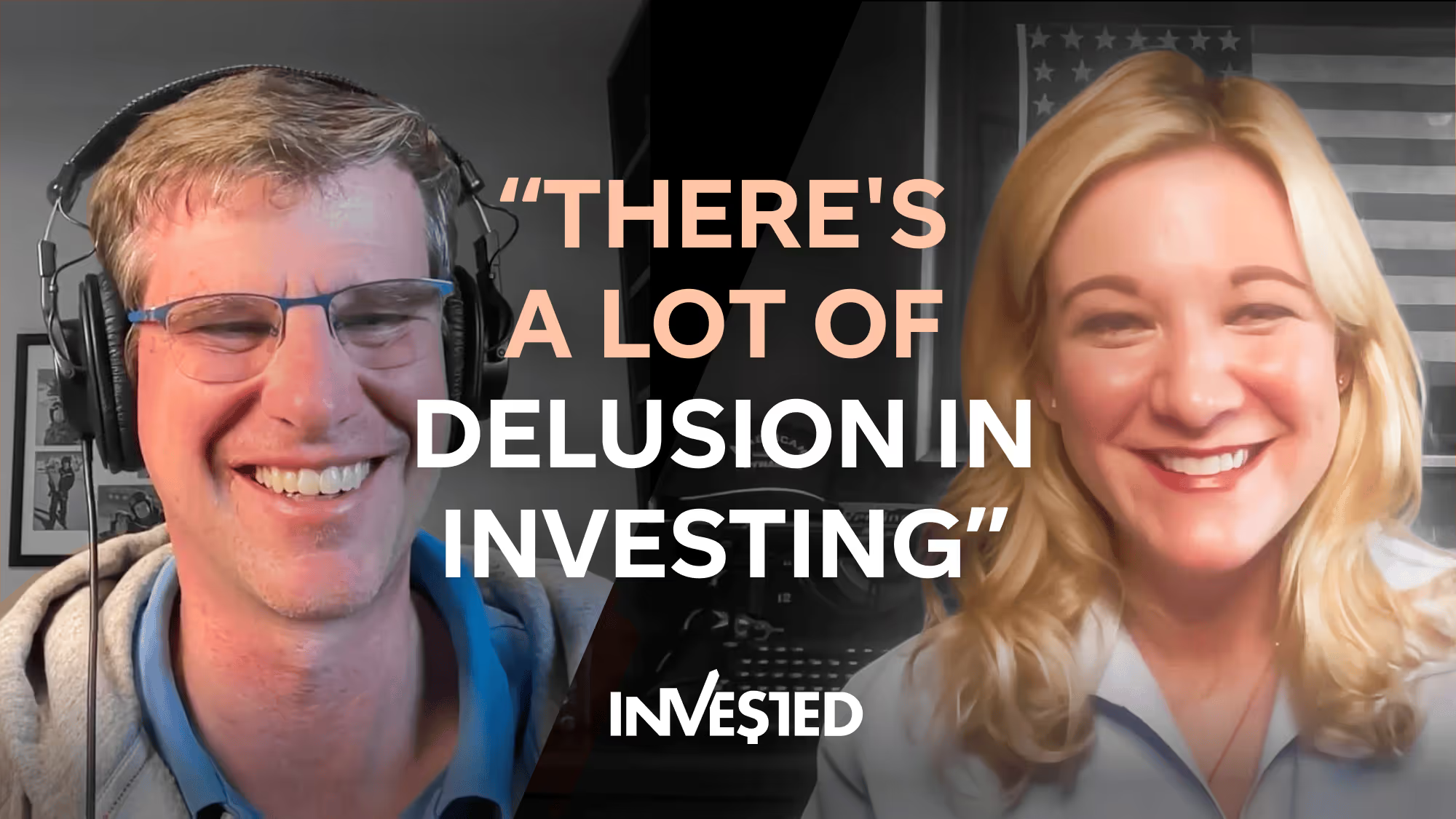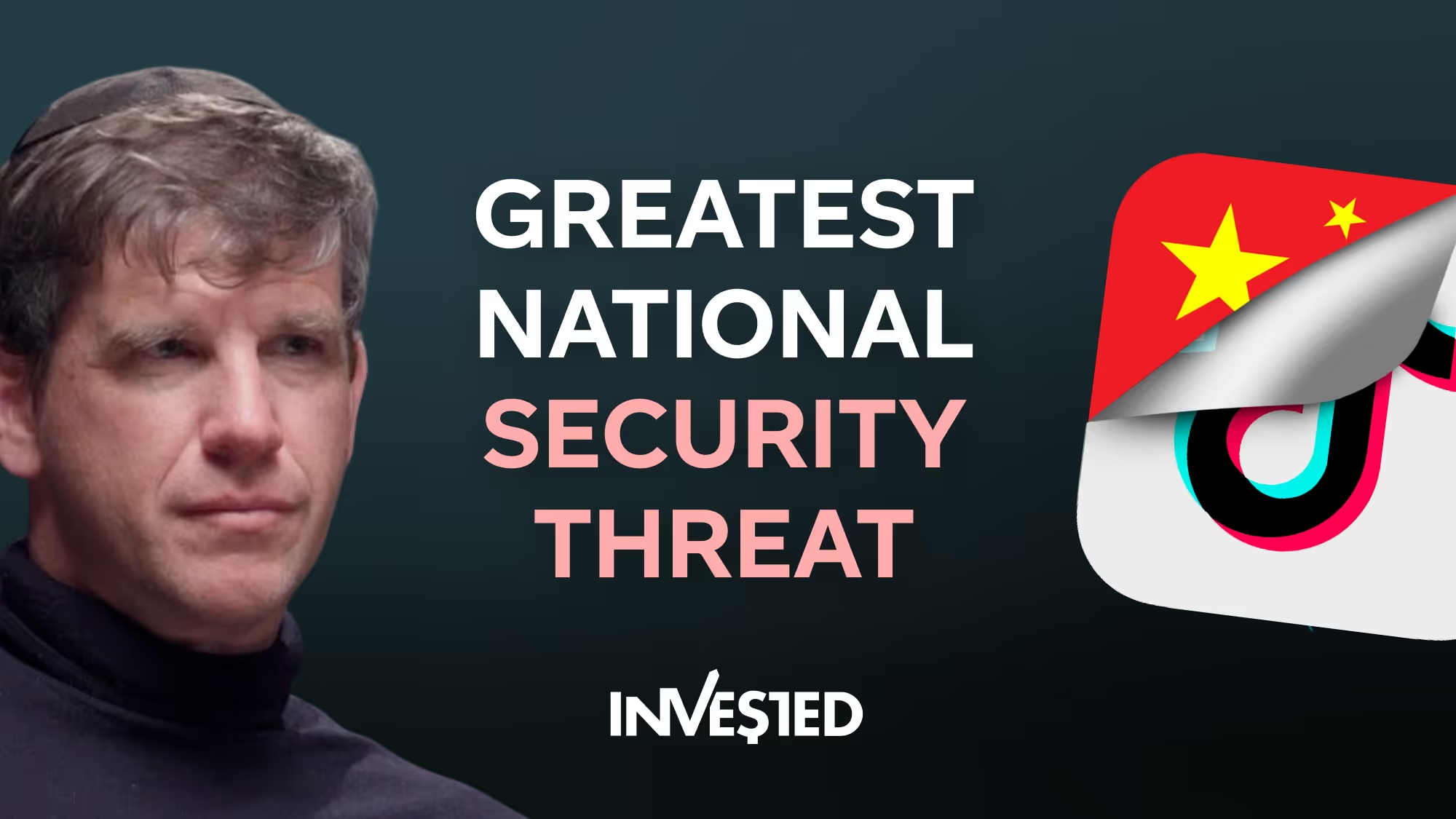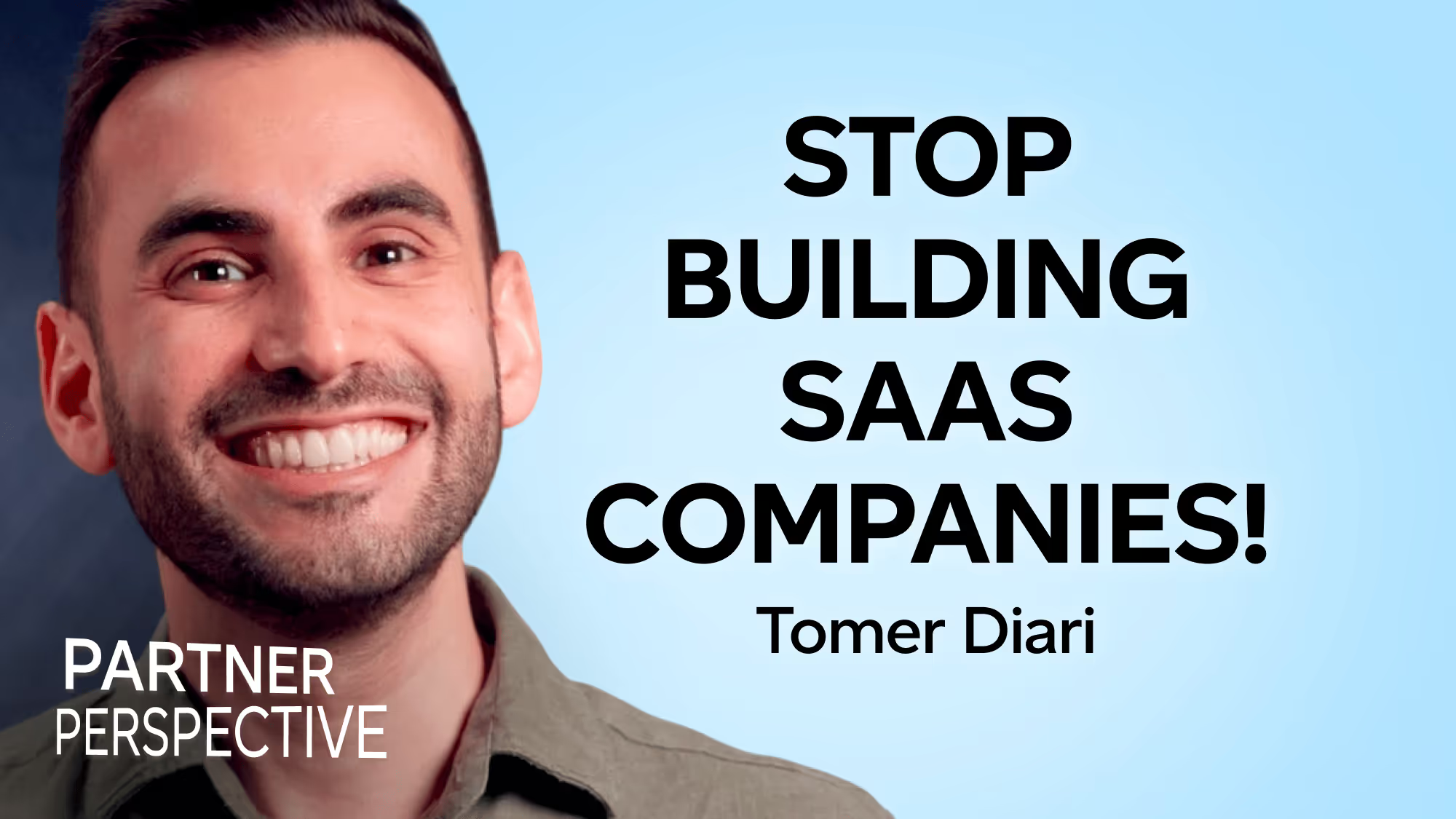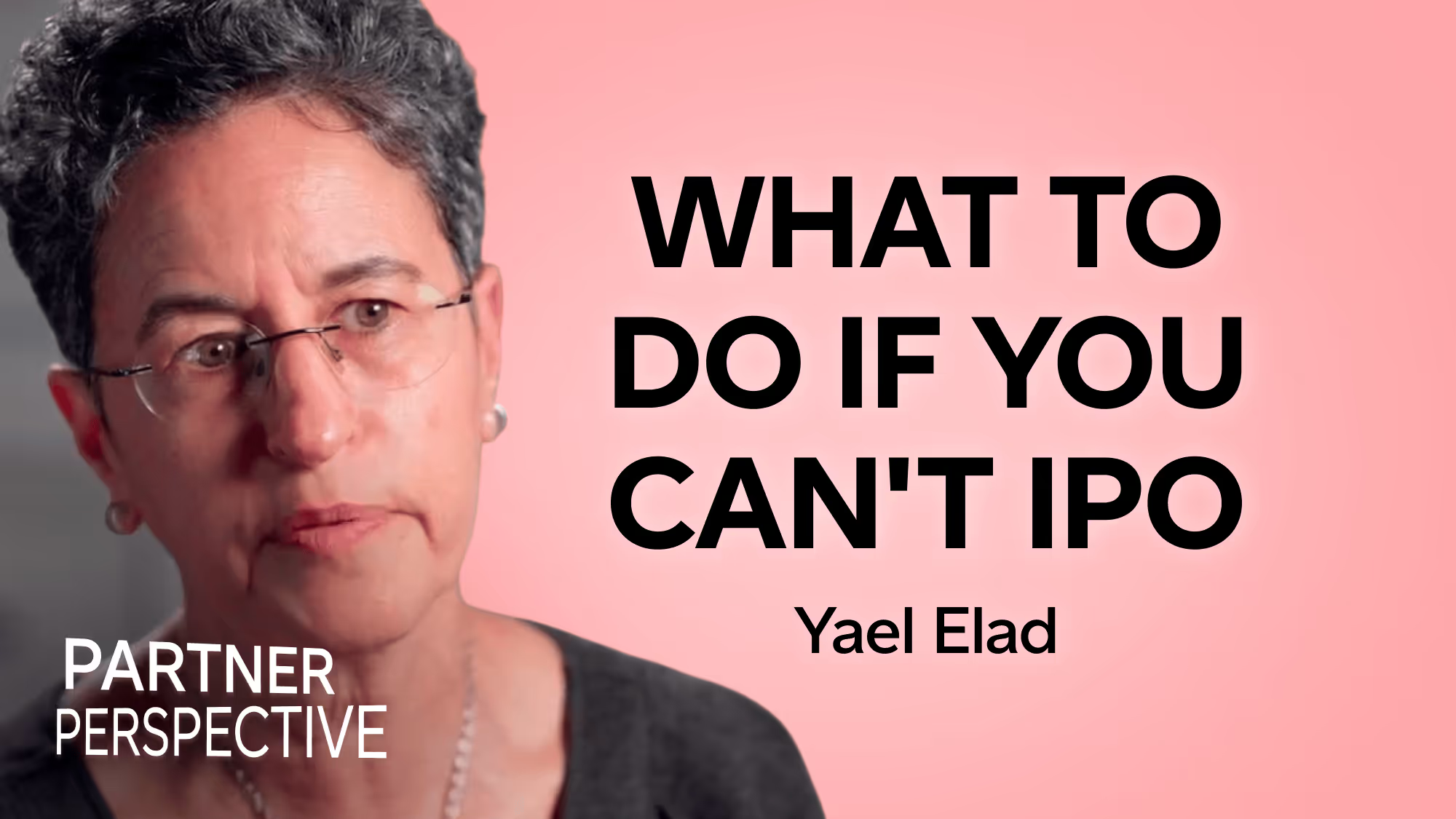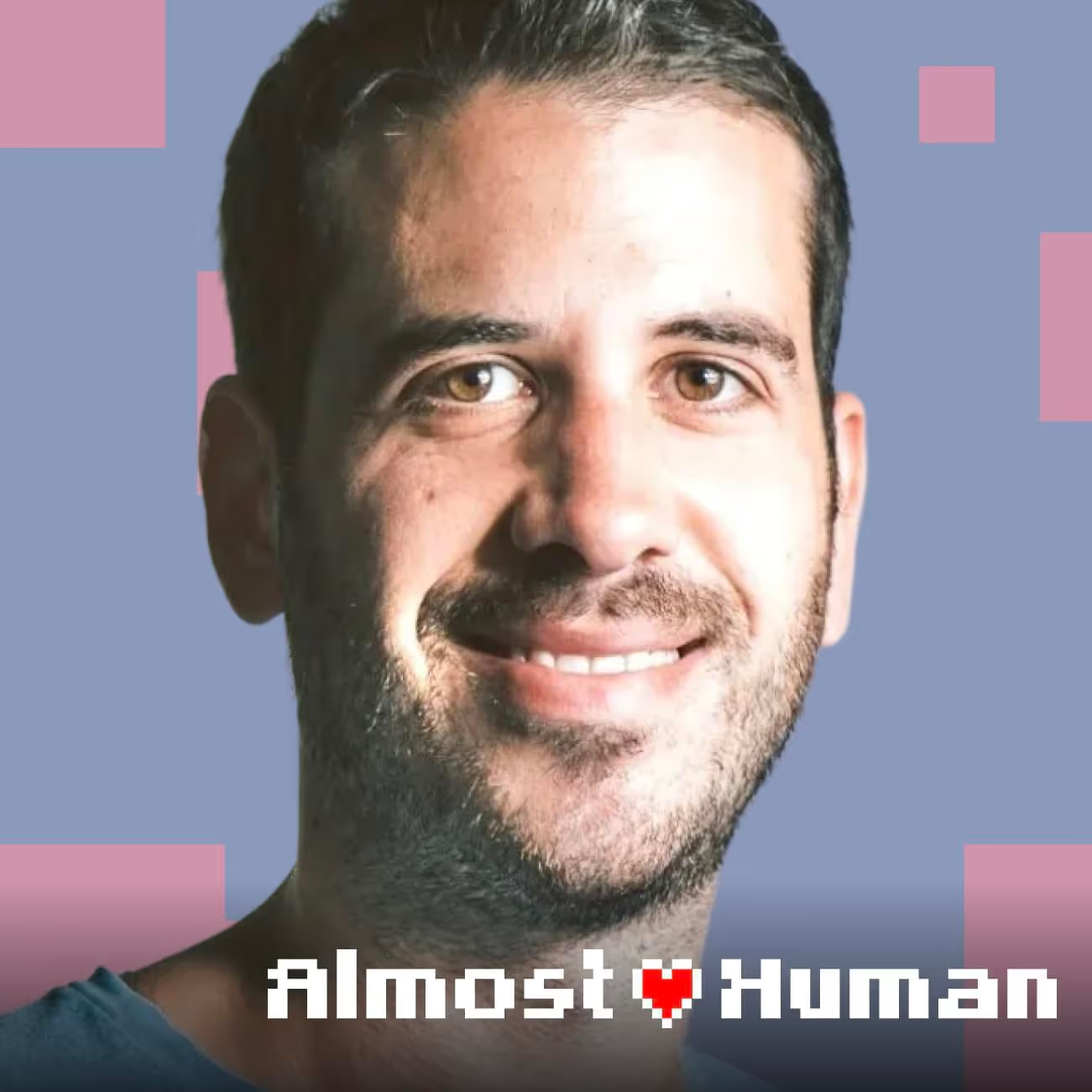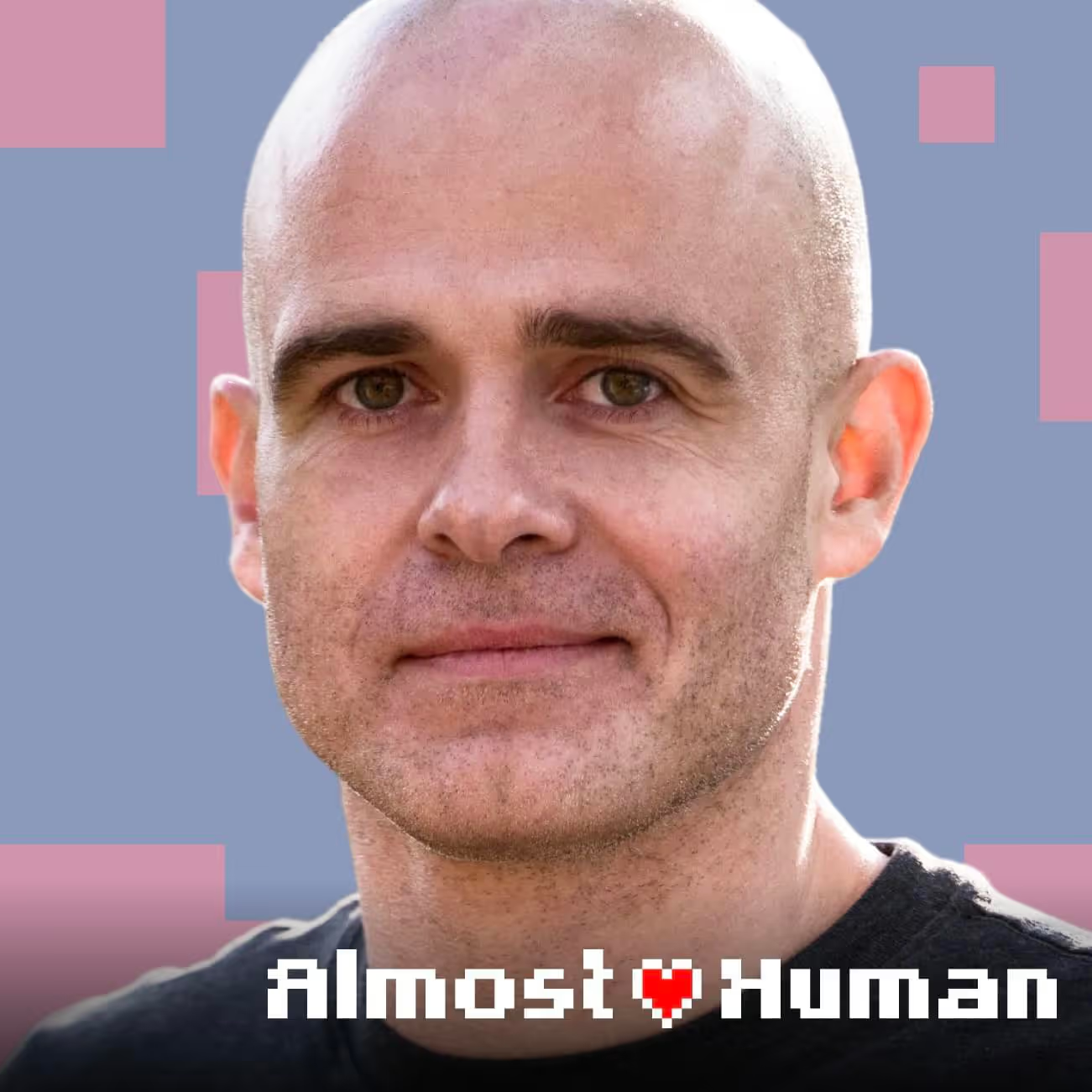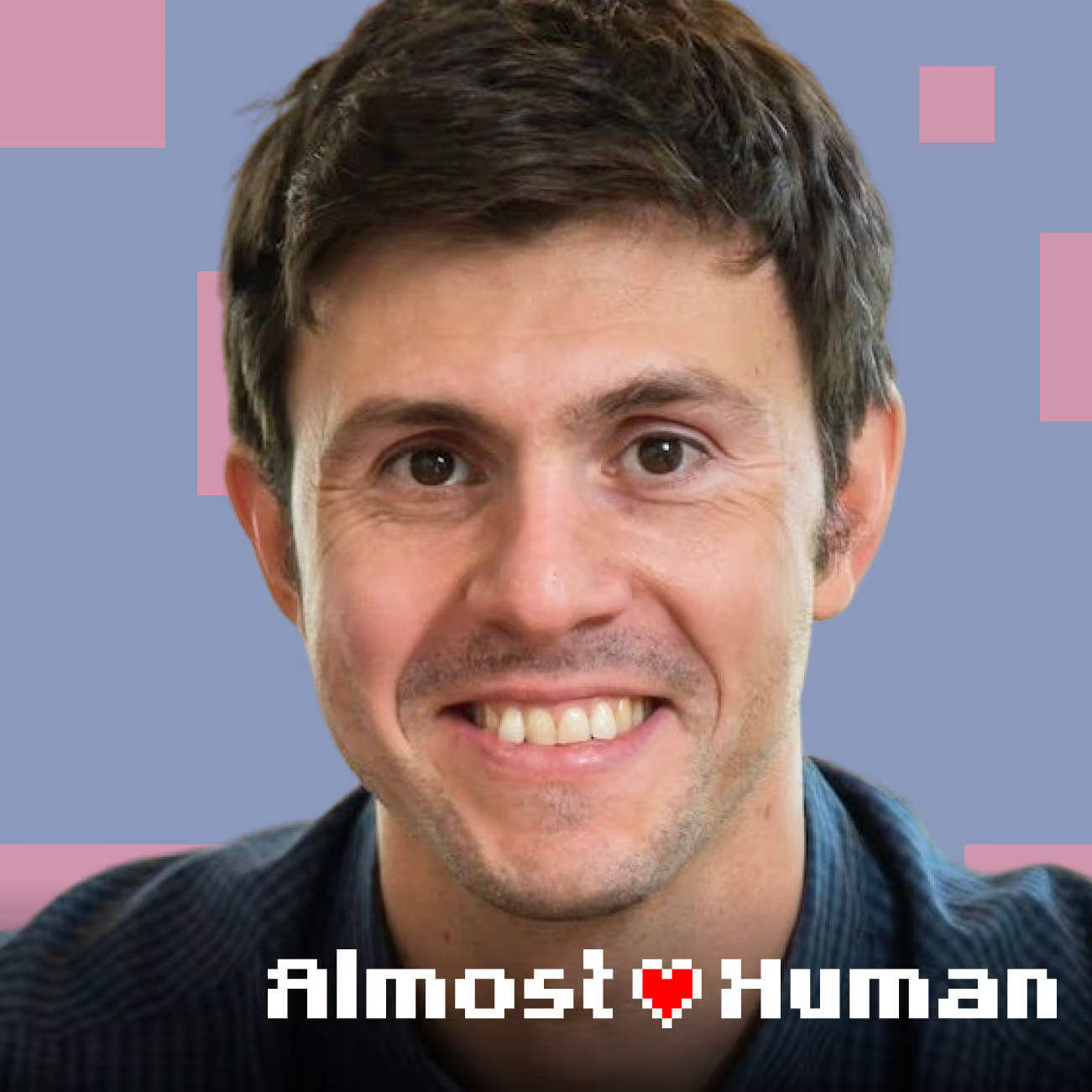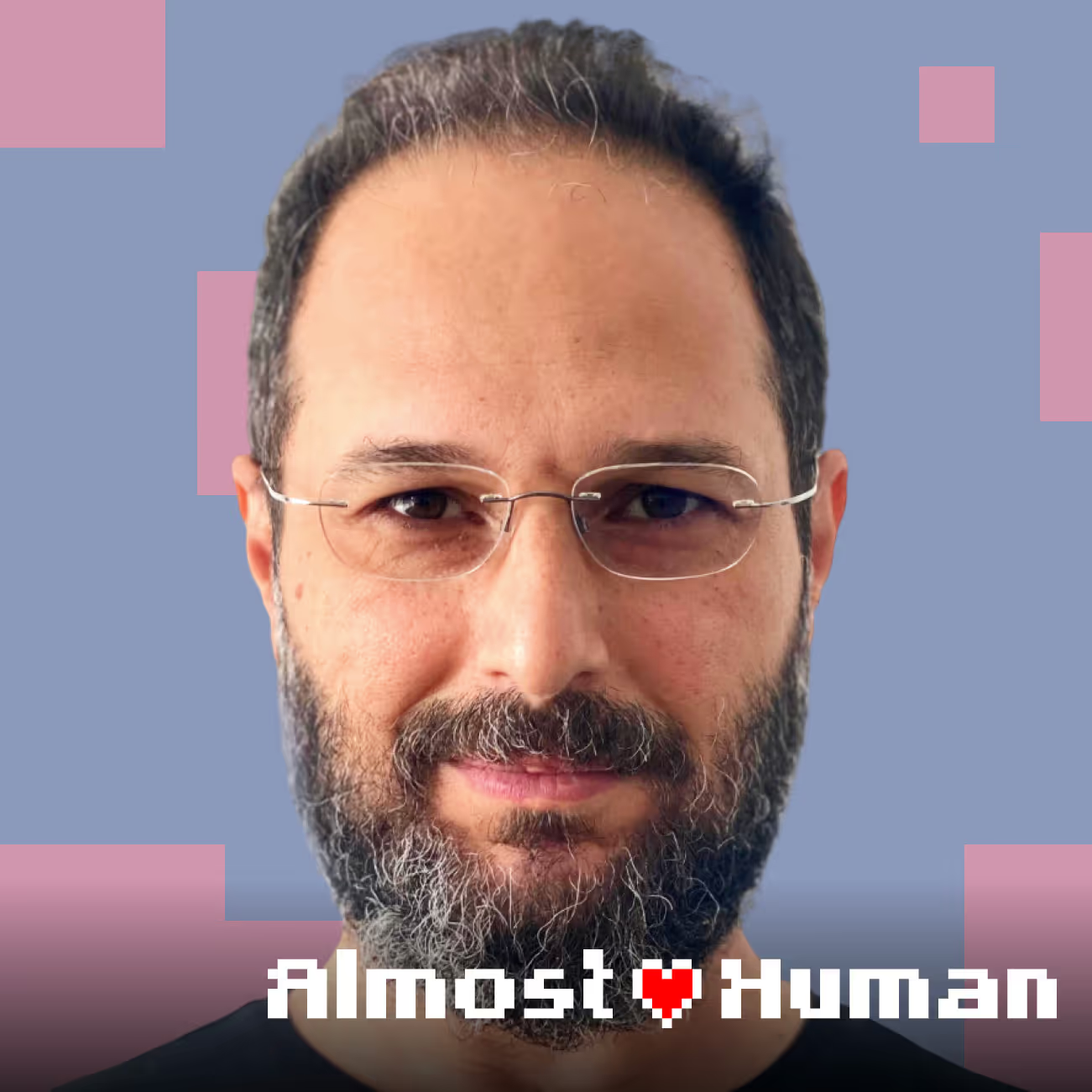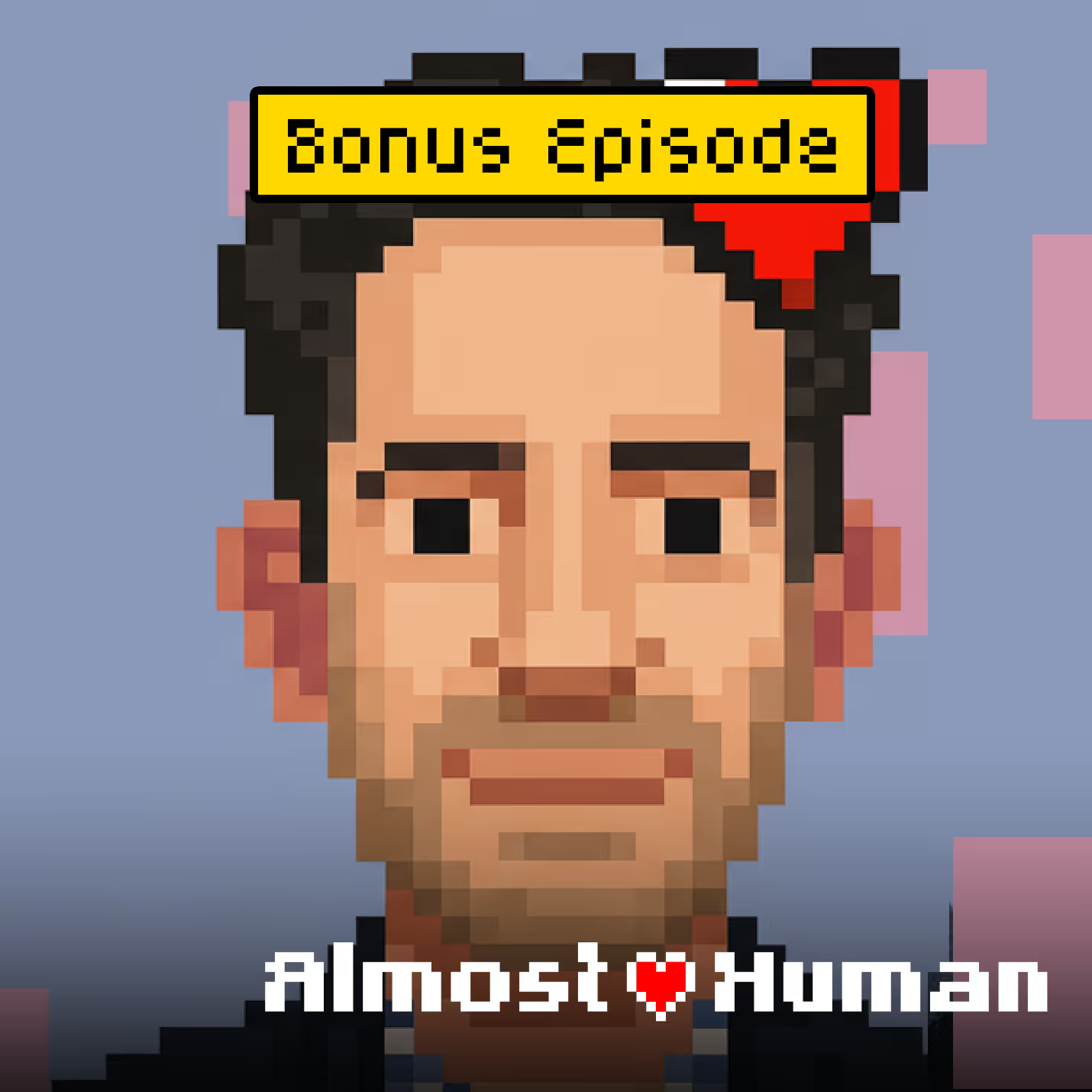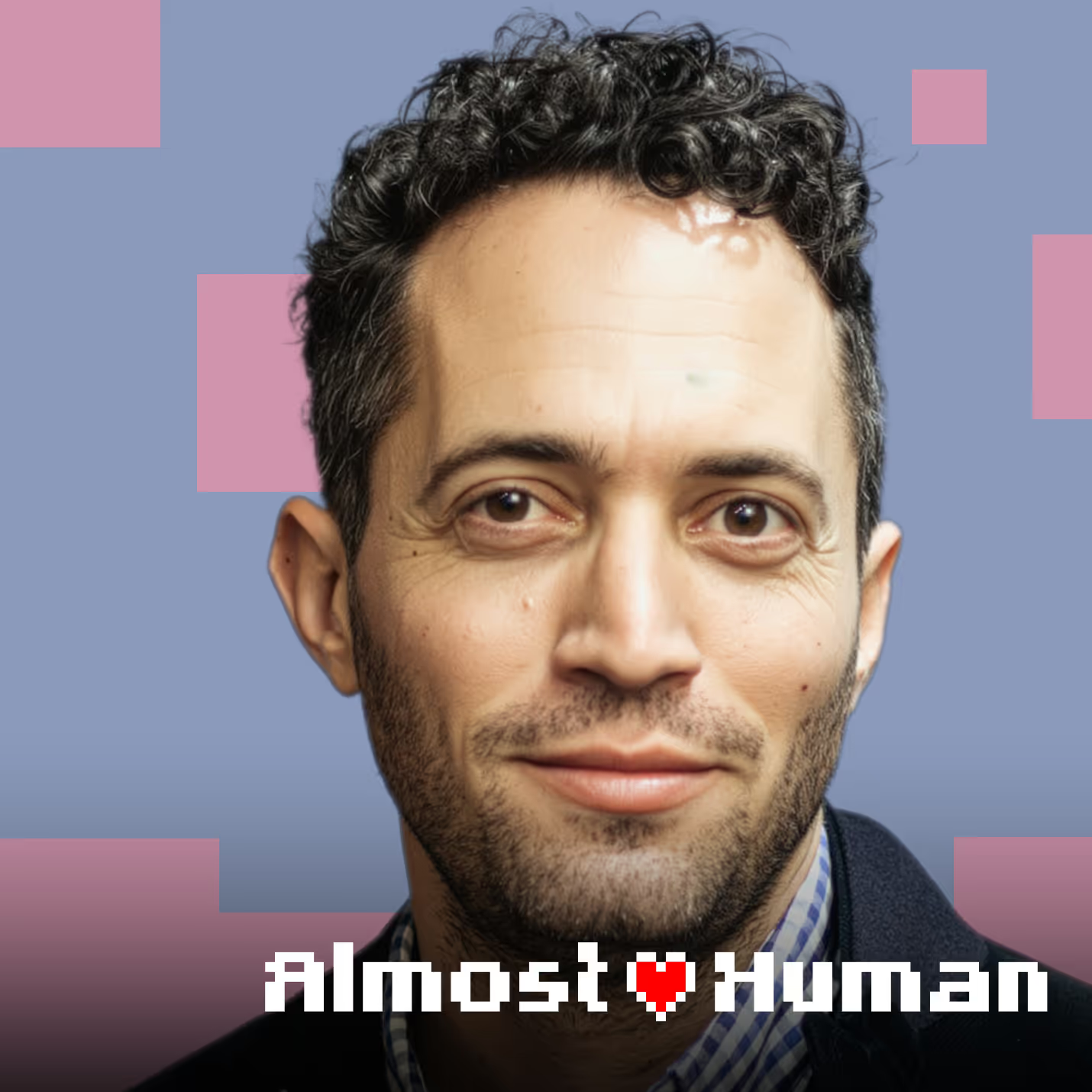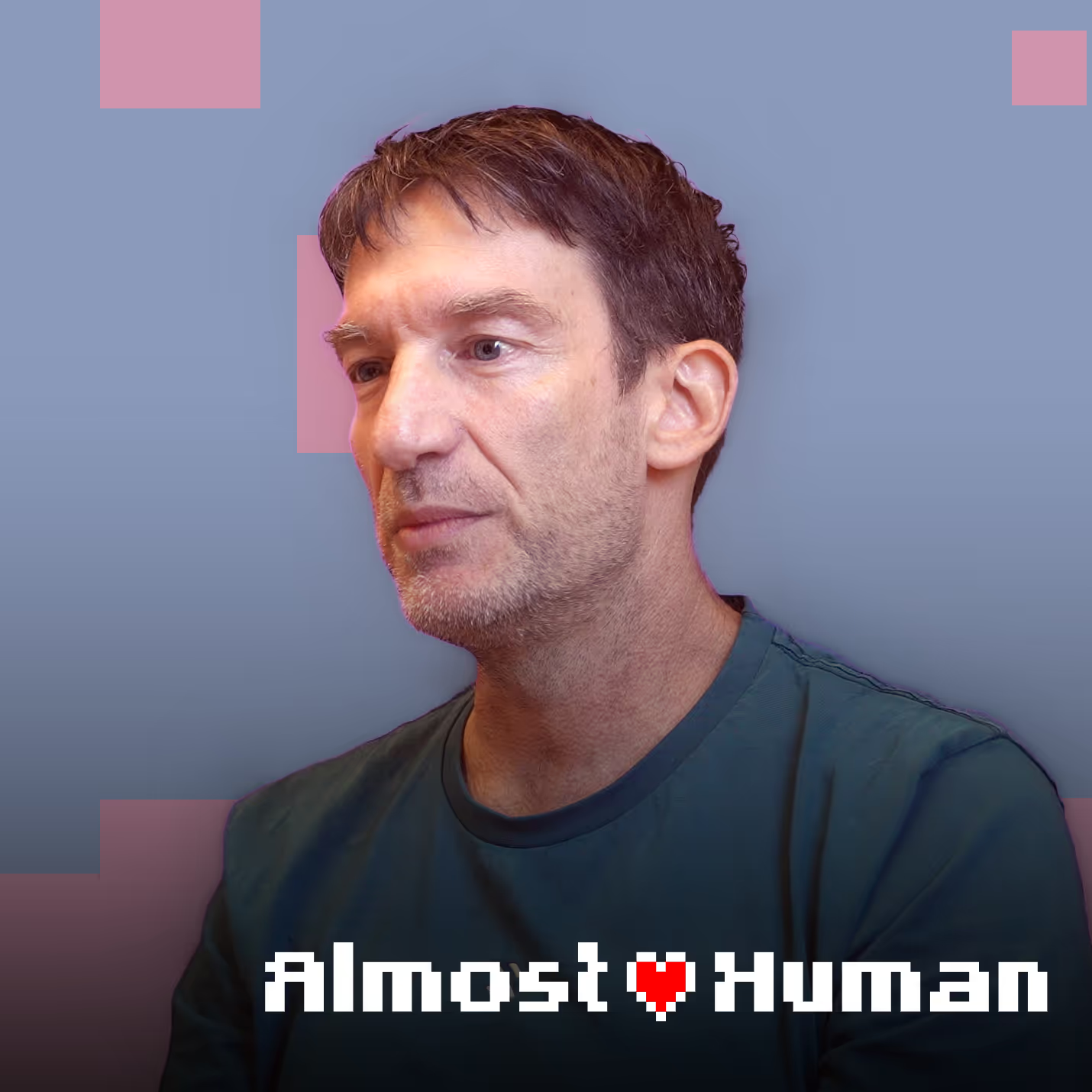Beezer Clarkson



How can values create value? On this podcast, Michael Eisenberg talks with business leaders and venture capitalists to explore the values and purpose behind their businesses, the impact technology can have on humanity, and the humanity behind digitization.
Beezer Clarkson



How can values create value? On this podcast, Michael Eisenberg talks with business leaders and venture capitalists to explore the values and purpose behind their businesses, the impact technology can have on humanity, and the humanity behind digitization.
Beezer Clarkson
Beezer Clarkson

Beezer Clarkson
Beezer Clarkson
- [00:00:00] Intro
- [00:01:42] Starting OpenLP
- [00:03:45] Groupthink in Venture
- [00:07:06] Momentum Investing
- [00:10:13] Choosing the Right Investments
- [00:14:40] How to Get a “Yes” from an Investor
- [00:21:00] Large Funds or Small Funds
- [00:30:00] How Important are Early Wins
- [00:35:20] Is There a VC Personality Type?
- [00:37:36] Advice to Young VCs
- [00:43:00] Is Now the Worst Time to Invest?
- [00:54:48] Mission or Returns
- [00:59:00] Importance of Diversity
- [01:01:00] Ageism in VC
- [01:08:00] How Investments Changed Since October 7th
- [01:12:21] Investing in AI
- [01:15:31] Rapid Fire
On this episode of Invested, Michael hosts Beezer Clarkson, a partner at Sapphire Partners.
Beezer leads Sapphire Partners‘ investments in venture funds domestically and internationally.
Beezer began her career in financial services over 20 years ago at Morgan Stanley in its global infrastructure group. Since, she has held various direct and indirect venture investment roles, as well as operational roles in software business development at Hewlett Packard. Prior to joining Sapphire in 2012, Beezer managed the day-to-day operations of the Draper Fisher Jurvetson Global Network, which then had $7 billion under management across 16 venture funds worldwide.
In 2016, Beezer led the launch of OpenLP, an effort to help foster greater understanding in the entrepreneur-to-LP tech ecosystem.
Beezer earned a bachelor’s in government from Wesleyan University, where she served on the board of trustees and currently serves as an advisor to the Wesleyan Endowment Investment Committee. She is currently serving on the board of the NVCA and holds an MBA from Harvard Business School.
Please rate this episode 5 stars wherever you stream your podcasts!
[00:00:00] Michael Eisenberg: I am thrilled to have Beezer with me. Everybody knows who Beezer is, but her real name is Elizabeth Clarkson. And Beezer is one of the most sought after limited partners for venture funds. She runs Sapphire, which is, for full disclosure, an LP in Aleph. But Beezer, rather than having me introduce you, why don't you introduce yourself to our listeners?
[00:00:23] Beezer Clarkson: Great. Um, how far back should I go? Just my name and I would say start from the womb. Your mother's, that is. My mother's days. So I was born in London. Um, so I actually carry dual citizen, citizenship, British and US because my father was British and my mom is American. So out of the womb, I came out there with two passports, which I think is awesome.
[00:00:42] I do not take enough advantage of. But, um, fast forward to today, I am now with Sapphire Partners. And as Michael said I'm responsible for the LP strategy here along with the rest of our team. And, uh, just really delighted to be here. Thank you so much for having me on.
[00:00:59] Michael Eisenberg: And you've been at [00:01:00] Sapphire more than a decade already. I think it's 12 or 13 years, right?
[00:01:03] Beezer Clarkson: 12 years, which is unbelievable. I think it's the fastest 12 years, which it's crazy when you start adding up the numbers, but yeah.
[00:01:11] Michael Eisenberg: And neither of us have gotten a day older over those 12 years. Neither of us. You're also a member of the National Venture Capital Association. You're an advisor and the investment committee member at Wesleyan University.
[00:01:22] You also co host a podcast called Origins about the LP and VC ecosystem, a key reason, uh, in addition to our friendship that we're happy to have you here on Invested. And you launched something called OpenLP, which is powered by Sapphire Partners. So just tell everyone what OpenLP is about as we get started.
[00:01:40] Beezer Clarkson: Sure. So we started OpenLP, I shouldn't have the exact date, but let's say a decade ago. And, um, I want to make sure the clear that it's a very collective effort. And one of the reasons why we did open LP and I co founded it with Chris Duvos and a handful of other like minded LPs was because there just really seemed to be a thirst for understanding a bit more [00:02:00] about the venture ecosystem and how LPs were thinking we can talk about this or not, about how much transparency there is in venture, but for venture geeks like us, it was just really clear that there was a lot of great conversation with LP with VCs, sorry, doing blogs and tweets and.
[00:02:15] You know, now podcast, but there was a real lack of the LP voice and we wanted to create, uh, a system that will allow LPs to come together and participate and not have it unilateral, but really try to encourage other folks to come on and then help amplify the voices. So in many ways, I consider open LP a mission and a movement, which I know sounds like an odd thing to say in venture.
[00:02:37] Because you can go to our website, you can get our newsletter, but the point is that we created a forum where folks can come in and participate and go find information and really pull in other, other people that want to talk, because a lot of times, my experience is, and I'd be curious to get yours since you run this podcast, people want to participate, they just don't know how.
[00:02:54] And so the idea for OpenLP was how do we create a forum that allows other LPs that wouldn't [00:03:00] necessarily think about engaging to engage. And to share their point of views and what people might come to experience is that there's a whole wide range. And to quote a friend, LPs are like snowflakes, no two are the same.
[00:03:13] And that's not necessarily clear to VCs or entrepreneurs. So we just wanted to do that and we've been supporting it for the last decade. And I just think it's amazing the difference in the ecosystem today that you have LPs on multiple podcasts, you have LPs at conferences. We cannot take credit for all of this.
[00:03:29] I think it's just a really more of a comment of the interest in hearing that perspective.
[00:03:34] Michael Eisenberg: Is it really true now that LPs are like snowflakes or did open LP and kind of this open chatter create some groupthink?
[00:03:45] Beezer Clarkson: Well, there's definitely groupthink and venture writ large, and I do not think LPs are immune.
[00:03:50] Um, but the more I get to know various LPs and the more I talk to them, there really is a difference in how and why people build their portfolios. And Maybe it's not [00:04:00] radically different, right? Some people, if you're going for a financial return, it's financial return, but people's, um, what we might want for a financial return and what somebody else might want actually can be pretty different.
[00:04:10] Some folks do it for the directs. They don't do it for the fund returns. Some people do it for different, um, don't want to use the word impact, but they're trying to get at different business solutions. So, there is a wide range and family offices are pretty radically different from pension funds. Again, they're all investing capital in a venture fund.
[00:04:27] That's not different, but the hows and the whys are, can be pretty different.
[00:04:32] Michael Eisenberg: I actually didn't plan to get into this, but now I'm going to go down the rabbit hole, uh, entirely. So, uh, You know, when I started, uh, in venture capital, people like to call it venture capital career. I don't think this is a career, actually.
[00:04:43] It feels like a roller coaster ride. Um, there was like no one to learn from. So when I got started, I actually sought out people in, in venture. Henry McCance of Greylock was incredibly gracious with this time and Kevin Compton. Uh, of Kleiner Perkins is incredibly gracious with this time [00:05:00] and Bob Cagle of Benchmark and, and, and Bruce Dunleavy who became my partners later, uh, were incredibly gracious, uh, with their time and wisdom.
[00:05:08] And Bill Gurley and I kind of grew up at the same time in this business. So I was very fortunate in that way. Today, it feels like it's not just OpenLP, but like Twitter is like the open venture knowledge market. Uh, others like Thomas Tungans have been writing blog posts and, and many others. There's. Uh, just an incredible amount of, of information out there.
[00:05:29] And when you gather a group together, like open LP and everyone kind of gathers around the campfire, uh, I think what you called the herd mentality has gotten more extreme over time than it was when I entered the venture business. Am I correct?
[00:05:42] Beezer Clarkson: I have experienced the same thing. I. I don't think of it as herd mentality.
[00:05:46] I think of it more of the,
[00:05:47] Michael Eisenberg: Groupthink?
[00:05:49] Beezer Clarkson: The hype, I always say the word hype cycle, but the, the time an idea gets launched and the sort of, uh, jumping on the bandwagon, that timeframe is really shortened because everyone has access to the same information [00:06:00] if you put it out on whatever social media you want to put it out on.
[00:06:03] And that's new because when you and I were growing up in venture, You literally had to have a one on one conversation and maybe the other way of thinking is the information arbitrage was just higher because you just literally wouldn't know what someone was thinking because there was, unless you found them in a room and talked to them, you, I don't know how else you would know.
[00:06:23] And now you can know right away if they put it out there. I would say still though, something that's very present to me, even today, like I always say, I could have read the Starbucks business plan and it wouldn't have made a damn bit of difference. I would never have been able to do Starbucks the way Howard Schultz did.
[00:06:40] And I feel the same way about some of the information that everyone's like, Oh, but you can just read it online. I'm like, well, of course you can, but it's the person who brings it to life that makes all the difference. So. On one hand, I feel like everyone does hop onto these ideas really quickly and that in some ways can be a race to the bottom, but it's still true that how you do it is the meaningful difference.
[00:06:58] Michael Eisenberg: Has venture investing [00:07:00] become more like momentum investing than company building or kind of a differentiated perspective?
[00:07:06] Beezer Clarkson: Um, hmm. There's been a lot of momentum investing and you and I could go down the rabbit hole of is that in of itself being an excellent momentum investor or a long term strategy or is that a point in time ability?
[00:07:18] Hmm. I don't know for the long run if just following a herd is ever going to be the best returns. I mean, we'll have to wait another decade to see for this current batch, but. I don't feel like that was true. Again, there's short term gains, but not long, over the long term. I just don't think you can follow somebody else's path to success.
[00:07:36] Michael Eisenberg: Feels like momentum investing in liquid markets can work because you can kind of get out. But in illiquid markets like venture, it feels tough.
[00:07:43] Beezer Clarkson: Fair enough. Again, I was speaking of privates. That's a great distinction. In publics, I'm not a hedge fund manager. There could be a million ways of managing that.
[00:07:50] Michael Eisenberg: Let's dig in more to this information arbitrage idea. I literally had no plan to go down this rabbit hole, but this is great. So, uh, it used to be, say I had one on one [00:08:00] conversations. There's not just information arbitrage. I had kind of unique deal access, maybe a unique view on a trend. Um, but today you don't.
[00:08:06] So, um, the value of contrarianism today, is it higher or lower?
[00:08:14] Beezer Clarkson: Oh, it's so funny. I debate this in my head all the time because this whole, there's so many like memes and venture that people say and just accept as truths and I love and hate it. I will own that. Um, but one of them is being contrarian and right, which I think if peel back the onion, it means getting in early so you can capture the gains of that, right?
[00:08:32] For just making a sheer financial example out of it. So that has to be true from a numeric standpoint. But I think just coming up with a contrarian standpoint, because you want to be an out, be contrarian, doesn't get you there. So it's, it's not sufficient, you, it actually has to be authentic, I think.
[00:08:50] Michael Eisenberg: So like, um, I'm in the Gavin Baker camp, he of Atreides, uh, where I think these kind of foundation models and AI is the fastest [00:09:00] depreciating asset in human history.
[00:09:02] But there's a lot of venture capital dough that's gone in there and, and we just saw what happened to, uh, Mustafa Suleiman's company. I have no idea, but I think. I think it was reported that Greylock put 250 million in there at like a billion dollar valuation, uh, or something like that. Uh, no critique of Greylock.
[00:09:18] I mean, Reid Hoffman is one of the greatest investors and entrepreneurs of, Of all time. It's just the only place I actually know what I think are the numbers And um, but there's probably been I don't know how many billions of dollars put into these foundation models and everyone's chasing one of them um Uh, and I just I wonder I don't know how many dollars from sapphire as an lp You've got exposed into this foundation model trend, but that feels like everyone's gotta get on the momentum Uh, it's not clear That value accrues, just use an example there.
[00:09:48] And I think, uh, Bill Gurley and Brad Gerstner were talking about this on their podcast also. And so, uh, when you look at that as an LP, what are you saying to yourself? You're looking like 15 funds. We're 25 funds, many of [00:10:00] which you're probably invested in, and you see a lot of money going this trend called foundation models and you watch like meta with its open source over here and Google Gemini, even if they got the woke thing wrong.
[00:10:11] But what do you do?
[00:10:13] Beezer Clarkson: Uh, it's such a great question. Um, I think it goes back to, cause I, my suspicion is this is happening right now in the LLMs. It's going to happen with something else six months from now, three months from now it, you see it happening again and again. Okay. It's how the person comes to the table thinking about why they're doing it, and we spend a lot of time trying to understand with our GPs why they choose what they choose, because it's going to be different tomorrow than it was yesterday.
[00:10:38] So. The specific example is something that ground the conversation around, but it isn't necessarily the answer if that isn't too meta. Um, so, because I think what you're asking is, what does an LP do when someone's all of a sudden starts making investments in an area that you're like, wow, how do we feel about that?
[00:10:55] I mean, we have conversations and try to understand why they're doing it. And if [00:11:00] you're, if you're committed to the fund, you're committed to the fund. And then the trust goes to the GP and says, you know, this, this is a blind pool of capital that there's, there's, it's, it's off to the races. But. When you're making an assessment of the underwriting, it is a lot of trying to understand their views on these different things so that when you do go along for the ride, there's a high level of trust.
[00:11:19] And there's always something people pour money into that's overpriced. I mean, you could look throughout the history, right? It was wireless way back in the day, you now remember this, and semiconductors and things that now seem
[00:11:29] Michael Eisenberg: Fiber optic equipment. Correct.
[00:11:30] Beezer Clarkson: Which now, like, everyone's like, oh, that's so small dollars.
[00:11:33] Relative at the time, it was huge dollars. Uh,
[00:11:36] Michael Eisenberg: totally. And we've had this, I think what's different now is exactly the point you made earlier where it feels like the, the bulge or the, the pendulum in each one of these things is actually larger, uh, at this point. Uh, you know, I lived with a dot com, uh, boom.
[00:11:52] You know, pets that this and pets that the other we make fun of because of the sock commercial, but there were others that everyone's forgotten about, you know, dot com by the dozen and there's fiber [00:12:00] optics, um, both in the equipment side and the, and the, and the fiber optic cables and providers that were laid.
[00:12:06] But it feels like because of what you said earlier, like. the trend is more extreme now that the dollar exposure, if I'm an LP, it's not just about the individual fund decision making. It's like you wake up tomorrow morning and find that one third of the dollars you've invested in, you know, in venture capital portfolios now in LLMs.
[00:12:24] Correct. What do you say? No, no,
[00:12:25] Beezer Clarkson: you are a hundred percent right. I think it's, um, the quantity or the, what's the right word? The quantum of dollars now is so much larger because there's something here about the intersection of human nature. There's something about I think very human level of FOMO that you're like, Oh, this is a massive trend.
[00:12:41] If I'm not on it, what happens? And I think LPs are just as human as GPs. So I think, and maybe entrepreneurs, I, we're all people. So I think that's just true. And then you get this discussion of the exits. And when we saw these very large companies being created, you know, the, the private to publics in 2021, and then the.
[00:12:59] I don't know how many [00:13:00] fabulous ones we have now. Are we at seven? Are we back to five? I'm not sure.
[00:13:04] Michael Eisenberg: You know, the mag seven, the fab four, the, I don't know.
[00:13:08] Beezer Clarkson: No,
[00:13:08] Michael Eisenberg: no. Phenomenal five.
[00:13:10] Beezer Clarkson: I'm terrible. I'm terrible at the quick, like little quick naming things of not my forte. I won't try it, but you do see trillion dollar companies created.
[00:13:17] So it. I think that fees are human psychology, if we have to get on this, what if we miss the one and in that fear, a ton of money can essentially get wasted. I, again, this is my personal belief, there's something in the ability to hold all these conflicting emotions in the, in the, in your mind at one time as you invest, that the powerful comes out of it.
[00:13:38] And you can figure out where you want to be, but you, you have to be able to acknowledge That the human aspect and the fear and the potential at the same time, otherwise it's just not, it's just not authentic. It's not how the world works.
[00:13:50] Michael Eisenberg: So you made an important point now, which is, uh, it's about like the human element and you keep coming back to that, uh, both on the behavioral side, chasing the trend, tracing, you [00:14:00] know, the FOMO, et cetera.
[00:14:01] Um, but also in the, uh, in the ability to identify the one, right? The venture business is a grand slam home run business, not just a home run business. Uh, You need, in your portfolio of whatever fund it is, you need one that's a massive outlier and you don't want to miss it. And what are the Beezer shortcuts or heuristics to finding a someone or a group that can pick a one, an N of one that delivers outside returns?
[00:14:30] Beezer Clarkson: I do talk about people a lot because we're in the business of early stage investing. So we invest in early stage venture funds, emerging and established. Um, and it's about the people. And I'm sure if you ask any early stage investor, you're going to hear this because it's, it, that's just what is there then, right?
[00:14:46] There's sometimes you have companies that you can look at the data points on, but there's not a lot. And when you invest in people half the time, it's just an idea and that's the powerfulness of it. Um, so as an LP, we have certain processes that we put in place and I, I'm about to [00:15:00] say something that sounds contradictory and I, I accept both sides of it, which is, you The only way that we know to repeatedly do something, which is based on something that's so hard to the intangibles of, is to have a repeatable process you can run every single time so that that's the consistency.
[00:15:15] And so we underwrite, and it sounds so banal. We underwrite a series A fund with three X net and a seed to a five X net and in the peeling back of the onion of what needs to be true, you get at the why of the people. And I'm happy to go into as many weeds in that as possible. Yeah, yeah, yeah. Give
[00:15:30] Michael Eisenberg: us that process.
[00:15:31] Um, This is the, for all the listeners, this is the shortcut of how to get Beezer's money. It's because it gives the,
[00:15:36] Beezer Clarkson: I'm happy to share it because this is why I'm like, just, there's no secret. It's just hard. Like, why you? Like, why Michael? Why Aleph? Like, what, who were you as a person that led you to want to do this?
[00:15:47] And then how are you constructing this firm to attract the best entrepreneurs? Because that's really the most important part, right? And it's the GP founder fit. And what is your point of view on the market? What's your point of [00:16:00] view on team? What's your point of view on culture? What kind of checks do you want to write?
[00:16:03] How does that align with how you are and how you go to market? And then there's portfolio construction questions, which sound just basic numbers, but a lot of that does go to how you want to be and what you want to do. Do you want to be a lead investor? Do you want to be a collaborative player? What is your ownership target?
[00:16:20] What size fund are you raising? What is the market that you're investing in? And then with all that, you kind of put it in the soup and you can kind of do some simple math and say, like, there's easy ones. There's no let me just also cheat to the end. There's no one right answer, which I think is part of what makes the world awesome.
[00:16:38] Michael Eisenberg: Right. But at the same time, it's hard to make that decision. It's deeply heuristic. So it's like, you put it in the soup and you say, Oh, this might taste good, but I don't know.
[00:16:46] Beezer Clarkson: Yeah. But let's see, but you, I would say what I've learned over the last, I've been in venture now for in different versions at like 20 years.
[00:16:53] There are a lot of things that are flags on what's going to make it a lot harder. It's not a guaranteed fail, but you're like, Oh, [00:17:00] this is going to raise the challenge of doing this a lot. Yeah. There's no like, okay, we'll start with the simple things. Portfolio construction. A lot of times people simply don't run the math of what needs to be true, given the check size and the ownership and this and that.
[00:17:15] It's not going to guarantee you a wonderful exit, but it certainly, if you need to have 10, I'm making up a little hyperbole, a little hypo, hyper, hypo, hyperbole, hyperbole, sorry, too much caffeine. It's only 9 o'clock,
[00:17:29] Michael Eisenberg: Beezer.
[00:17:31] Beezer Clarkson: Yeah, I've been up for a few hours. All right. If you need 10, 50 billion companies to return your fund because it's large and you're going to have 1 percent at the end of it, it could happen.
[00:17:41] But statistically, you are going to be so far out there on the curve, it's going to be very hard to underwrite that. So one always needs to believe the future is going to be different from the past, but how much are you stretching that? We will look at numbers like that. And then what is the likelihood that you will get into these types of [00:18:00] companies?
[00:18:00] Do you need to own the whole market? Are you saying you're going to invest in every single one of a certain type of company? Again, traditionally, just that's just not historically how it works. Um, how many deals per year can someone really do and keep track of like, they're just some basic sort of tests you can throw, throw against the wall and say, does this feel realistic given what we've seen happen?
[00:18:22] And there are other ones that are a lot more, um, I'd say art versus science. Like what is the area someone's investing in? And does that feel like a big enough space? And there's some things which. Can look misleadingly small and some which just feel small like do you remember the whole AR VR world when there was?
[00:18:40] I can't remember how many funds we saw wanting to invest just in that space that to us I'm gonna say felt too small but if someone was saying I'm looking at data that goes online and is being played at in this area and I can translate that Into a multitude of different areas some of which might be driving AR and VR that to us is an interesting [00:19:00] thesis So it kind of goes back to that resonance, right?
[00:19:03] Michael Eisenberg: What percentage of the funds you invest in hit your underwriting targets? Like, I invest, I know 50 percent of my companies don't, don't make it to anywhere, right? So I have a, I have, I have a bad hit rate. Um,
[00:19:18] Beezer Clarkson: Well, that's venture.
[00:19:20] Michael Eisenberg: So we do
[00:19:20] Beezer Clarkson: expect a loss ratio and that's part of the portfolio construction math.
[00:19:24] Like you, if you don't take that into account, it's very hard to be thoughtful in how you're doing it. So when people say I'm never. And I'll caveat this and say the last, what, help me out here, 2015 to 2020 loss ratios were just not where they historically were. So far. Yeah. So we, and now, now we're seeing it, right?
[00:19:44] Like now it's catching up. And so that to us doesn't freak us out. Like we anticipate there should be a loss ratio and when there's not, everybody's portfolios got very congested. Um, but I would answer your question, uh, it, you know, it takes, I'm going to say this [00:20:00] for all the people that don't, haven't done the math, it takes 10 to 15 years to see full productivity of a fund.
[00:20:05] So we have some that hit the underwriting early because they were able to get exits in the exit land of 2020, 2021. We had some folks who were quite young that because they were small early funds, um, crypto was also very productive. If you got out, I would just throw that out there. Sometimes the getting out is at.
[00:20:25] It's unusually early and people that take advantage of it can be great. Um, I'd say it's on track. It's on track. There's definitely some which have slowed down. But what percentage of
[00:20:34] Michael Eisenberg: your funds don't return capital?
[00:20:36] Beezer Clarkson: At all? Like none? Oh. No.
[00:20:38] Michael Eisenberg: No. Don't return 100 percent of invested capital. Like, don't do 1x.
[00:20:44] Beezer Clarkson: Um, so far of the vintages that should, um, I don't think we have any, I'd have to go back and look at the numbers. I think people, I think, I'm sure there's somebody out there. I'm sure there's, I'm sure there's a couple, none of the, some of them are coming to [00:21:00] mind. I'm sure there's a couple because it's just true.
[00:21:02] Like people have underperforming funds and I, we do the best job that we possibly can, but reality is reality.
[00:21:09] Michael Eisenberg: You mentioned before that the portfolio math doesn't, Work. So in many cases, and then you mentioned if you have a large fund that requires three 50 So large funds, small funds, where do you come out?
[00:21:22] Beezer Clarkson: Well, since we do early stage, we definitely have a preference for what I'd call right sized funds, and then it depends on the strategy. It's a little, it's, I know it's like the worst answer ever is it depends, but if that was
[00:21:32] Michael Eisenberg: so politically correct, large funds are small funds, Beezer. I'm not as nice as Harry when he interviews.
[00:21:37] Beezer Clarkson: Our average, if I had to average out our funds, and again, since we do a number of seed funds, that's going to pull us down because they're sub, maybe the average seed fund now is anywhere between 50 and 125 million, depending on the strategy, but I'd say our typical series A fund is probably between 250 and 450.
[00:21:56] And again, it's a little bit of a, what are they doing? How many [00:22:00] people, how many check writers, all that kind of goes into the mix. Although I would say, and I'm going to own this just in case it's helpful. Okay. Because you and I can get into this. A lot of times you see GPs doing the math of the number of checks per partner, which reality and should absolutely be looked at.
[00:22:15] That is not, however, how companies exit. Nobody acquires a company and says, Oh, but there was five check writers at this firm. Therefore, I must pay you this multiple. They just exit however they exit based on that company. So we look at both sides of that equation because it just isn't the same input, right?
[00:22:32] People do need to have enough air in the room to write the checks they want to write. But that doesn't dictate the size of the companies on the other side.
[00:22:39] Michael Eisenberg: Nor by the way does it dictate who gets the exits in a five person partnership or six person partnership. That tends to be unevenly distributed, I think.
[00:22:46] Beezer Clarkson: Oh, that's interesting. That's probably very true. And ideally, we'd Everyone likes it when everyone has it, but it's not always true. And then I think at least our experience is other people can still play important roles. It's just not necessarily captured in the [00:23:00] numbers from a sheer, I don't know what you want to call it, sourcing board seat attribution level.
[00:23:05] Michael Eisenberg: Do you ask that
[00:23:06] Beezer Clarkson: question? Sure. Mostly because we're interested in. What's very opaque to LPs, and this is why LPs ask a lot of these questions, is what actually happens, like, what happens in the room? Like, when Michael goes into the room, what are the conversations like? It's fascinating. We just want to know because this is all part of the world that we don't get to see, and we don't pretend to have a right or wrong answer on this.
[00:23:28] We literally just don't, don't know and would like to know because all of that is part of what happens. Do
[00:23:33] Michael Eisenberg: GPs tell you the truth?
[00:23:35] Beezer Clarkson: I don't know. You tell me. I hope so. I'm not talking
[00:23:38] Michael Eisenberg: about myself. Of course I tell you the truth, Beezer. I'm just asking about everyone else.
[00:23:42] Beezer Clarkson: I think for the, I would like to believe for the most part, I think people tell their truths.
[00:23:46] If you, I'm sure you had this experience, you can ask six people what happened in a room and you will still get six different versions. And. And we don't take that to mean that someone's lying. We just take that to mean is that's how people experienced it. And [00:24:00] the real, the reality is somewhere in the middle of that, right?
[00:24:03] Because where you, isn't that where you stand is where you sit or whatever that phrase is. It's all going to dictate it. It
[00:24:09] Michael Eisenberg: sounds like postmodernism has hit the venture capital world. There's no truth in the world anymore. Everyone's got their own little perspective.
[00:24:15] Beezer Clarkson: Well, I don't know. This is one of the conversations.
[00:24:18] One of the questions
[00:24:18] Michael Eisenberg: you asked to get to the bottom of whether people are telling you the truth.
[00:24:22] Beezer Clarkson: We just ask a lot of what happened, how did it, you know, what, what did, don't think there's one super secret get to the truth question. I would love it. If you know it, share it. I think we just always ask, like, how did you make this decision?
[00:24:34] What were you considering? What happened? Tell us what the company was doing. You know, a lot of times we'll be curious about how the customers are, what's happening, what's happening for the company as it goes to market. That's a really important part of the puzzle that I don't know if GPs, I don't know if all LPs care about, we like to hear it because it really gets at how the company is doing it's doing and that is also something which you can read about in the paper but a lot of private companies don't share because why should [00:25:00] they?
[00:25:00] But it really speaks to like, how is it going? Is it repeat customers? Is it new customers? How do people engage with the product? As a, as an investor, I love knowing all these things because it just gives you the texture of what's going on.
[00:25:13] Michael Eisenberg: Now, what happened? Like, for example, like you've got a GP of three or five people and you happen to have dinner one night with one of the GPs and lunch the next day with another GPs and you get a conflicting answer.
[00:25:24] What, what do you do with that?
[00:25:26] Beezer Clarkson: Meaning wildly different, like I was never
[00:25:28] Michael Eisenberg: happening at all, but just in case it happens with someone else, what would you do with that? Like a conflicting answer?
[00:25:33] Beezer Clarkson: Well, here's an example I got the other day, which I thought was interesting. There was, um, a GP who was saying how they were trying to win a deal.
[00:25:40] And until they decided they weren't doing it, they were spending a bunch of time with the entrepreneur as one does. And then we got feedback, not was the GP ended up not making the investment. And then the feedback we got for reasons that were totally, you know, there's to choose and we were not. We didn't have an opinion.
[00:25:56] We just noted it down as okay. It didn't fit though, what they were looking for. [00:26:00] The entrepreneur was not happy, not a surprise. They wanted more term sheets. And so their experience was they felt a little bit let on. It's interesting feedback because I get why they might feel that because they wanted a term sheet.
[00:26:14] This was not at all. I've bought it just for the record.
[00:26:17] Michael Eisenberg: We never lose deals. I know what you're
[00:26:18] Beezer Clarkson: talking about. You never lose deals. Um, and this, this time the GP didn't necessarily, I don't know, they didn't issue a term sheet. So I don't know if that counts as lost or not. But the entrepreneur was upset because they thought they were going to get a term sheet and their term.
[00:26:30] They're they're. The thing was they felt let on and I was like, that's their language. I'm not going to say that's not true, but is that, how do you experience that if you decide not to make an investment, but you're going to engage until you do like two different reports and we just observe it and say, okay, the deal didn't happen and here are the two experiences of it.
[00:26:50] Um, accepted as both sides being fair, but just different experiences.
[00:26:54] Michael Eisenberg: But here's an interesting comment on that. If there's brand damage there, right? So Entrepreneur X [00:27:00] is now going around and saying that Fund Y, uh, led me on. Correct. Um. But then. And.
[00:27:07] Beezer Clarkson: Correct. So you, you keep asking and you keep an ear out, but also you should be allowed not to do a deal just because, just cause you said hello to an entrepreneur and dug in and looked at the data doesn't mean you're obliged to invest, right?
[00:27:19] Sure. We feel both sides of it. So I'm just saying is. There is no simple answer. You just have to understand and get as much context as possible and there could be times I suppose when the Stories conflict so much it's hard to know if what the reality is. I'm sure there's an example of that if it could just come to mind, but you do the best that you can with what you got.
[00:27:38] And if you consistently, I suppose, get information that doesn't add up, that in and of itself is a piece of important information. I would say, and this is a little bit of a generalization, but I think it's helpful for folks, LPs do love hearing consistently awesome feedback, but I think You don't want to be blind to it and only assume everything is always positive.
[00:27:57] Like we're all human and things happen. And sometimes [00:28:00] you have to have hard conversations and not everybody likes the hard conversations. And I've known multiple times when people will say, Oh, somebody gave me some hard news and I was upset about it, but I don't know, a year later I realized they were right.
[00:28:11] So sometimes it's also the timing of the tough news,
[00:28:16] Michael Eisenberg: right? Have you ever stopped the relationship with the GP group?
[00:28:20] Beezer Clarkson: Yes.
[00:28:21] Michael Eisenberg: What caused you to do it? Uh,
[00:28:24] Beezer Clarkson: a couple of times we've had funds grow outside of our mandate. So we celebrate this. We don't do a lot of later, larger funds. So if someone is going on and doing, kind of building their business in that method, it's just not what we do.
[00:28:37] It's not our focus at the early stage. So that's, that's definitely happened. Um, sometimes funds have kind of stopped doing their doing. So it's a bit of a mutual, you know, we can talk about succession management. Sometimes it just doesn't work. And then people stop. Um, so we've had that happen in our portfolio.
[00:28:54] Uh, there have been times when the performance has been challenged and [00:29:00] it doesn't look like things are changing. So we have an obligation to our LPs to be good fiduciaries and there, that comes into play. That usually is. an extended long time frame. That's not a one or two fun because it just takes, there's not enough time to see that.
[00:29:14] I would say that's something that probably comes up over a much more of a longer time duration.
[00:29:18] Michael Eisenberg: Interesting. So performance is the least likely reason that you would cut a relationship.
[00:29:22] Beezer Clarkson: It's ironic to say it out loud like that, isn't that? But if you, I know, um, it's interesting. I needed, Uh, I, I think ultimately when the performance is that kind of an indicator, they're usually something that then gets tied to the go forwardness of that GP in general, do you know what I mean?
[00:29:41] Like usually there's a challenge comes out and there's something in succession, there's something where they're morphing their business. And it just changes and it, that usually seems to be similar.
[00:29:50] Michael Eisenberg: All right. Now we're on the question that I actually, actually, before I get there, you said earlier about like exits, uh, getting out.
[00:29:59] How [00:30:00] important is an early win for a venture fund? Like an adventure capitalist period to kind of get their career launched. There's like, there's a meme on Twitter, if that's the right, You know, term, or maybe I don't think he's an urban legend, but a discussion on Twitter that basically if you get an early win in your, in your career, you can kind of you're set, but if you don't, you're going to struggle for a while.
[00:30:24] How true is that?
[00:30:26] Beezer Clarkson: Um, sometimes LPs are just as susceptible to believing something, whether or not it's true. And that is a hundred percent in that camp. I think if there's an early win, it becomes this great proof point that everybody can hang their head on and say, Cause in early stage investing, there's so few data points for so long that kind of are easy to sort of run through a calculator, which again is not the best way of necessarily looking at things, but it's, we're human and people have to sort of show up and go to their investment committee and say, here's why I believe in having data points doesn't hurt.
[00:30:56] And having an early win can be really compelling, not just [00:31:00] because it can be a financial success, but because to your point about brand, it can really be this amazingly powerful flywheel for the brand of a fund. And then, and I do think it's a bit of a trope, which is the, Oh, when you get success, begets success.
[00:31:14] And if you have this early success, you can then leverage it as a GP and entrepreneurs want to work with you. And I can tell you countless narratives where an entrepreneur and an LP will come to me and say, I want to work with so and so because they were an investor in pick your favorite IPO.
[00:31:30] Ironically, sometimes the GP that did that deal is not even with the fund anymore, but it's so associated with the firm, they've captured that brand value. And that's really powerful because. There does seem to be some consistency of performance around funds that can capture that flywheel. And that goes into the, you know, you get to fund for and on, you can see the track record developing.
[00:31:51] And it's not just the LPs who are willing to then continue investing. I think it's the entrepreneurs keep coming back and there is that the best entrepreneurs want to work with the [00:32:00] best investors, want to know they're surrounded by other great entrepreneurs. And so you can really get that momentum going.
[00:32:06] Conversely, I know GPs that have had great success and they don't talk about it and they continue on because they're just not on Twitter and they're not doing that thing. And it's, it's interesting to see that too, right? Like emergence with, with FIVA did amazingly with that company. People talk about box and it's, but you know, for a dollar deployment, if you put whatever they put in like 10 million, some small amount into this company that went public for a much bigger value.
[00:32:32] It was hugely, was hugely, um, financially lucrative for them and their LPs, but everyone talked about the box investment because everybody knew about it. Does it matter? Do you know what I mean? Like, these are interesting open questions.
[00:32:45] Michael Eisenberg: You know, I, I think a lot about my friend, Roger Ehrenberg from IA Ventures, who's like a quiet guy, incredibly successful and wonderful human being.
[00:32:53] Uh, there's many ways to prosecute this business, but if I had to ask you, um, [00:33:00] what's the most Marker of future success, early success, brand of the fund, or hustle? Which of the three would it be?
[00:33:08] Beezer Clarkson: Ooh. So we invest early. So saying early success feels, it's, we invest sometimes before those are those proof points are there.
[00:33:17] So that feels to be, uh, I can't use that as an answer. There is sometimes there's, we look for things in people's life that indicate, I think I struggle to have a great term for this. It's this interesting balance of being able to see the envision a different world given the same data points that other people have, like a point of view that you can really get behind and the hustle to keep going out there and doing it because it is a long road.
[00:33:45] And I think that's where the momentum kind of putters out for folks. I just, if I went back and I triangulated and I said, why did we work with somebody before the success was, you know, you could check the boxes and be like, Oh, great exit or Oh, great TVPI. Right. [00:34:00] There was this ability of them to think differently and I'm really trying to avoid the term first principles because I don't, I think some of these terms don't really get at the real meaning and we use them and people don't, don't understand the nuance of it.
[00:34:14] Every single time someone has a point of view and we're like, Oh, that's really fascinating. And it's the same data points that somebody else has, but they're looking at it with their own set of eyes and coming to it and saying, but I see this possibility and it doesn't necessarily get expressed in one company.
[00:34:29] It has this whole sort of. market to it doesn't have to be one theme or one thesis, but it tells me my takeaway is this is really compelling. I can understand why an entrepreneur is going to choose them because it resonates and you can hear it reflected back from entrepreneurs. And yeah, early success is awesome because then you can fill out the little form and be like, Oh look, Michael invested in these six IPOs.
[00:34:53] He's a great investor. Check, check, check, check, check. But that's like a fund four or five thing. That's not a fund one or two thing. If you're a [00:35:00] spin out, yes. But even then, I would say a lot of people that spin out don't necessarily have, you know, 15 years of experience. It's great if people do, but that's unusual.
[00:35:11] Usually people leave at a slightly more of the, it's still the upside of their growth curve as an investor,
[00:35:18] Michael Eisenberg: right? So is being a venture capitalist a skill set or a personality type?
[00:35:23] Beezer Clarkson: Can it be a mixture of both? Is that cheating? You want me to pick one answer?
[00:35:28] Michael Eisenberg: Oh my god, Beezer.
[00:35:31] Beezer Clarkson: I know. This is the mind. I know.
[00:35:33] It's very busy in here. Is it a
[00:35:35] Michael Eisenberg: skill set or a personality type? Coke or Pepsi? Oh, I never really liked Pepsi.
[00:35:43] Beezer Clarkson: Um, not really a soda person.
[00:35:45] Michael Eisenberg: I never did either, but I haven't drank soda in, I don't know, two and a half decades probably. But, uh,
[00:35:49] Beezer Clarkson: Way back in the day I was a Coke person, but I haven't had a soda in so many, like what, 20 years?
[00:35:54] So I don't know, but grew up in the Diet Coke era. So I'm a victim
[00:35:56] Michael Eisenberg: of that. It's a skill set or personality type. [00:36:00]
[00:36:00] Beezer Clarkson: I don't think you can be successful without a personality. I really believe there's a personality that drives this, but I think you can learn the skill set. I think the skill set is learnable.
[00:36:08] I don't, I think it's harder to learn a personality type, so I'm going to go with personality type.
[00:36:12] Michael Eisenberg: So are you an investor or a psychologist?
[00:36:17] Beezer Clarkson: I know you like this question. I should have prepared a better answer. I think there's a lot of psychology in investing when you deal with people. Right? I think if you're a growth investor or a public's investor, it's, it's, no, probably a whole different ballgame.
[00:36:30] Michael Eisenberg: Am I a psychologist or an investor?
[00:36:33] Beezer Clarkson: I'm not a trained psychologist.
[00:36:35] So is it terrible if I say I might be a bit of bit of that, like 70%, 30%? I'm just asking if
[00:36:41] Michael Eisenberg: you think I'm a psychologist or investor.
[00:36:45] Beezer Clarkson: Oh, I probably is the same. I think you're heavily into the people side. Right? I mean, you tell me, how do you consider yourself?
[00:36:53] Michael Eisenberg: Probably a poorly trained psychologist. You wouldn't want to entrust me with your children.
[00:36:58] Uh, well,
[00:36:59] Beezer Clarkson: you have, you, you [00:37:00] have experience with a lot of children. I don't know. Just ask them, they would tell
[00:37:04] Michael Eisenberg: you, they would tell you my kids, you know, you wouldn't want to use me as their psychologist. Probably. Uh, no, I think I'm like, I'm with you. I think it's a personality type and you obviously need, um, I think the financial skills are learnable.
[00:37:18] Uh, I, I, I, I have joked that I still struggle to read a balance sheet. Um, but, uh, I don't worry, AI
[00:37:27] Beezer Clarkson: is going to solve that for us. It's fine.
[00:37:29] Michael Eisenberg: Hey, I, I, yeah, we'll talk about that and say, but I'm finally getting to the question I wanted to open with, which, uh, by the way is, um, I want you to literally give advice and I see you got Harry Stebbings behind you, a young Harry Stebbings is behind you.
[00:37:47] So, uh, this is perfect. If you are giving a young VC advice. And there is right now this giant generational shift underway in venture capital. I mean, I've turned up at a couple of conferences recently. I know 50 [00:38:00] people introduce themselves to me as venture capitalists. First of all, I feel old, but second, I go, where the hell these people come from?
[00:38:04] And, um, what would you tell them should be their pitch to you as a potential LP, a young person starting out?
[00:38:15] Beezer Clarkson: Yeah. I think the simple answer is the, is the, is a great one, which is why you literally, why are you doing this? Why do you want it? Not just Why do you want to be an investor, but why do you want to invest in this area?
[00:38:28] And why do you think this area is compelling? That's we basically, that's what we want to hear.
[00:38:36] Michael Eisenberg: And if you just see like a young guy like Harry, uh, you say, why can he do this business? So why can he do this business?
[00:38:44] Beezer Clarkson: Oh, so I remember first meeting Harry, he and I got on to prep for a podcast and I think we had a three hour conversation.
[00:38:51] I mean, this was 2016, 17, it was a And I was so struck by his [00:39:00] curiosity and his interest in learning. And he had, he had point of views and theses and whatever you want to call it, but he was really listening for the information saying, I am observing this. What do you think? How does this work? And that curiosity I think is just amazing.
[00:39:16] And it's, it's not that you can't come to the table and have, have a reason for why you think it's true, but I do think at the early stage, if you're not always asking, how does this work and why does it work, you're just going to miss the next trend because it's, it's never known yet, right? I mean, again, I'm, I feel like an idiot saying your business because it's, This is just my observation, but it, it feels like at the early stage, it's all about what's new.
[00:39:37] So if you're not curious about learning about it, how does that, how does it work?
[00:39:42] Michael Eisenberg: So first of all, for full disclosure, I'm also an LP with Harry, uh, for a lot of the same reason. I'll get on to one more reason after, but, um, so is curiosity the core trait for a venture capitalist?
[00:39:55] Beezer Clarkson: I think it's a very compelling one.
[00:39:57] I think ambition is also very important and that can get [00:40:00] expressed in multitudes of ways because Transcribed Whatever gives you your hustle, and maybe it's not ambushed, and maybe it's a different version of wanting to change the world, and this is your method of changing it. But there's something about that that's going to have to get you up and out of bed every day, energize you.
[00:40:14] I have a belief, and I have no data points to support this, and maybe this is a psychologist, but if you're energized and passionate about the work that you do, it'll translate into carrying you through longer. And I wish I could triangulate that and say it's guaranteed to make you a great investor.
[00:40:28] Thanks I can't, but I don't know somebody who has been successful as an investor. Isn't passionate about the work that they do and it can be expressed again like it doesn't mean they have to be like Harry's an extrovert charismatic lights up the room when he walks into a person. I know introverts that are also passionate about what they do and they're much more reserved.
[00:40:50] So one of the things that I adore is this can be physically expressed in a hundred different ways of, you know, thousands, but it's, but it's there. And these folks are just going to be like [00:41:00] relentless, like, no, I believe this is true. And I'm just going to keep going out there and looking for it. Venture is a long game.
[00:41:07] I'm like, it is a marathons of marathons and I don't know how you get through it without that.
[00:41:13] Michael Eisenberg: So you just said core trait one of a venture capitalist curiosity. Core trait two is either ambition or, or passion. In the venture business, you say no a lot more than you say yes. And so is skepticism or pessimism an important trait or is optimism more important?
[00:41:33] Beezer Clarkson: I think the general trope is that early stage investors are optimistic by nature because how do you envision a world that's different when an entrepreneur comes to you if you're not? This is where I fail as a psychologist. I don't know if that's always a hundred percent true. I think being able to see how big it could be does differentiate the early stage investor from the growth stage investor at some level.
[00:41:55] The dialogue is just different when you talk to people. Um, [00:42:00] but I do think having, understanding where the potential potholes in the road can be is an important ability. You have to be able to balance these two, like, I'm sure, and again, I am envisioning what it's like to be in your shoes. You have, at some level, you help guide the entrepreneurs and knowing what's coming down the road is very helpful because you've seen it happen and maybe it's just some things around hiring or team or go to market.
[00:42:23] So you don't want to be a Pollyanna and be like, Oh no, no, it's always going to be fine. That's. Not true, but being able to see what could go right is a very powerful, is a very powerful lens to be able to look through.
[00:42:35] Michael Eisenberg: Entrepreneur friendly, overdone or not?
[00:42:38] Beezer Clarkson: I think of it means being blind in, in how we go to market and how we support each other.
[00:42:43] Maybe. Um, not that when entrepreneurs need a lot of support and encouragement, they're doing the, they're doing a real tough job. I mean, they're really the reason why we're all here just to bring it back and mad respect. We're the
[00:42:55] Michael Eisenberg: stagehands.
[00:42:57] Beezer Clarkson: Totally. I say the LPs are the peanut gallery. We're like [00:43:00] in the back.
[00:43:01] We're like, go team! That's
[00:43:04] Michael Eisenberg: good. That's good. I'm going to come back to that, the peanut gallery. So, um, I asked Mamoun at Kleiner, uh, what I should ask you. And he said, I'd asked Beezer if this is the worst time in 20 years or so to be a first time fund. And if you were a first time fund, how would you increase your chances for raising, uh,
[00:43:25] Beezer Clarkson: He's smart one, Mr.
[00:43:26] Mamoon. He knows a lot of good questions. Um, the numbers say it is definitely one of the low points. If you just look at the number of new funds that have been raised, looking at 2023, it is a small number. And LPs are not leaning in as much as before. So you have a bunch of challenges coming at you. Um, that said, I'm going to die on this hill.
[00:43:50] It is so much better than it was before, even if the numbers don't support it, because the multitudes of ways that you can bring a fund together. Now, like, I'm just going to throw out some of that. Like, the rolling fund [00:44:00] world did not exist. I don't know. 10 years ago. It is a way Like the Angel List
[00:44:03] Michael Eisenberg: Rolling Fund world.
[00:44:04] Just to tell people. Yeah. There's
[00:44:05] Beezer Clarkson: a way to get started. You can use, um, different ways of incorporating so that you can publicly raise on Twitter. Like there are means of getting your message out that just didn't exist before, which doesn't mean to say it's going to be easy, but you have those advantages, whereas before it wasn't.
[00:44:20] There is information to the conversation we had earlier, so you can go out and do your homework. And I tell this to my son all the time, I'm like, the bar is higher, my friend, because you can't say, I don't know, because you can go look it up. And so all of those are great tools in the First Time Fund Tools Kit.
[00:44:36] There are VCs that invest, not just individual VCs, but there are VCs that run mini fund to fund programs. And so there's ways of gathering dollars that just didn't exist before. So even if the traditional LP world is a little skittish right now on emerging managers, there are also still programs of like, we have an emerging manager program that we launch, a new one that we're doing for CalSTRS we launched last year.
[00:44:59] There's folks [00:45:00] like ScreenDoor, there's Zendana, there's Pivotal. There's a whole bunch of folks that didn't exist, I don't know, five years ago, 10 years ago, I could get my math wrong. Um, but Mamou is right that it is a very hard time because LPs, generally speaking, are really dialing into the haves and have nots and concentrating their capital where they have the highest level of conviction, given some of the challenges that have gone on the past couple of years in venture and some of the overfunding and then the exit market.
[00:45:29] There's just a lot of mishegos out there right now in LP land that's still working its way through. Um, and I think also, I'll say this. I think a lot of GPs. Get the full picture of how hard it was to raise when money felt like it was raining down on people And so I do not think it's bad if people decide they just don't want to do it And you know what they try to one or fund two and they're like, you know what this isn't what I thought I don't want to side hustle as a venture capitalist.
[00:45:58] That's always been true. I think it just [00:46:00] looked like it was less true For a couple of years, and we're still appealing, you know, dialing that back and getting back to reality. This to me feels like what it felt like for most of my career and venture. So it doesn't feel wildly different. It just if you came to market in 2018 to 2022, it feels very different.
[00:46:17] It's
[00:46:18] Michael Eisenberg: interesting you say that, by the way, when I saw Ma'moon's note, and he said the last 20 years, so I've been doing this at this point, I guess, 27, 28. It feels to me a lot easier today than it did in the mid 90s. Um, and a lot, a lot, a lot easier than it did in 2001 and 2002, um, when there was incredible carnage in the dot com.
[00:46:40] And I think you're a hundred percent correct that the whole kind of rolling fund phenomenon, uh, the Harry Stebbings phenomenon, which is you could build a media brand before you raise a fund. So you gain notoriety and, you know, he did, he gave himself, you know, 10 MBAs by doing a podcast, actually did himself much better than any MBA.
[00:46:58] Uh, he even got paid [00:47:00] for it. And, uh, you know, and to your point about your son, there's just endless ways to kind of learn the craft for people sharing open source advice on, you know, Uh, on Twitter and you can get access to anybody in the 90s and early 2000s to find my way to Beezer was like impossible, you know, to get a recommendation and people, you know, Horsley Bridge, you know, turning down meetings or, or, uh, you know, Harbor vest and, and the endowments, you know, Yale, I can get in there.
[00:47:28] Tl and so I actually think it's much much easier right now Than it was in the late in the mid 90s and in the early 2000s, but to your point, I think a zurp phenomenon Um is that money was easy But also that venture capital became a known something like in the 90s This was not a known something even in early the only thing they knew about it early 2000s was all the embarrassed venture capitalists And you know the the dot bomb, uh bust but now everyone thinks this is you know, I think it's an asset class Which I don't but by the way, do you think venture capital is an asset [00:48:00] class?
[00:48:00] Beezer Clarkson: Not really. I mean I should say yes but the answer is, it still feels boutique to me in a way and, and delicate, which I'm sure Venture Capitalists just cringe that I said that but it is, it is still very much of a craft and I think an asset class feels like a little bit more of something you can pop into the public markets and everyone can digest in its own way.
[00:48:20] Getting in and out is just much more facile than it really is.
[00:48:24] Michael Eisenberg: Yeah. I agree. So, um, what makes a differentiated LPs? Like, your day job is you meet people like me all the time, um, we try to sell you stuff like us. They sell themself. Um, what makes you a differentiated LP? Like why should I take you? Oh, I did already.
[00:48:40] But why should I take you into my fund?
[00:48:43] Beezer Clarkson: Well, I'd love to hear the answer on your side because you get to choose your LPs and that's a whole other set of math that I think people would be super curious about. Yeah. We try, I think you have to pick why people differentiate you and build a business around it.
[00:48:55] So we have decided to, from a Sapphire side, dedicate ourselves to venture. [00:49:00] And you can be a great LP and invest across multiple asset classes like many of our friends in endowment. So I just say that as we just decided, how could we be special? And we're, we're going to, we're going to love this space.
[00:49:13] Like everyone on the team loves venture. We care about it. We care about it as a non asset asset class. We spend a lot of time thinking about it. We wanna be able to be the person that, if you wanna call, here's what one of my GPS said to me. They're like, I don't wanna have to worry about the 16 different things that are happening in venture land.
[00:49:29] I just want you to worry about it and then I'll call you and you can tell me what you see. And I was like, great. 'cause you know what? You should go worry about the entrepreneurs and all those things like you had enough to do. And we can just own our little portions of the world. Not to Adam Smith it, but a little bit.
[00:49:45] Um, and so we've constructed a team that feels this way. We've constructed a team picking folks for different EQ and IQ reasons, different parts of the LP world so they can bring different abilities to the table. So we have a team of complementary but different skill sets. We've [00:50:00] done that very purposefully.
[00:50:01] Um, we've built our business model of how we go to market, how we share things like open LP, things like origins. We do all of this so we can stay connected and thoughtful and engaged, um, much like your, you know, your example of going to a conference and feeling like, who are all these people? I feel ya.
[00:50:19] And I'm like, Ooh, I got to get out there more because it's my job to know this. And the world is moving very rapidly. And I feel like, It's expanding. Like, our TAM is just getting so big. And I, I should say this because, um, I didn't do this well in my introduction. So we at, at Sapphire Invest in, as I said, early stage emerging and establish U.
[00:50:39] S. Europe and Israel. So we want to be the person that can be, if you want to have this conversation, we want to be able to have the conversation with you about how is venture working and what have we seen and not just what we've seen, but to the extent that we can tap into the, the hive LP mind on your behalf.
[00:50:57] What are folks looking and seeing around in these geographies [00:51:00] and how is it playing out and what are the best practices that we can offer and again, you'll interpret it the way you need to interpret it for your firm because you can't take, I mean you can't take Mamoun's best practices and just stick it on Aleph and have it work.
[00:51:12] It's, it's going to have to be authentic for Aleph, obviously, but Anyway, that's a long winded answer to why do we, how do we do what we do and why do we think it's hopefully relevant. Um, but Who's the best
[00:51:23] Michael Eisenberg: LP? Fund to Funds, Endowment, Family Office, Pension Fund?
[00:51:28] Beezer Clarkson: I, I think they all are great at different times.
[00:51:30] I think it depends on who you are and what you're building towards and what you want around the table. And I know, I do think there's Are you running for office? No, I think if you say, I just, I don't have any, I can tell you, I've walked into the rooms and it's all one kind of LP and I'm like, yeah, there's huge value in that.
[00:51:46] And then I walk into rooms, I think there's, there's a common wisdom that says you should have, I'd be curious, you're very thoughtful in how you go to do your doing, having a range of LPs because sometimes the markets hit people differently. And so [00:52:00] we don't have a denominator effect because we don't have Publix.
[00:52:03] Um, but that doesn't mean to say we don't have other, you know, fund of funds don't have other issues, and we're not a fund of fund. We run very large SMAs for two dedicated LPs. Mm-Hmm. . But, um, that's a mouthful. So I need a simpler way of saying that. And family offices can be wonderful co LPs. So we, we really do like playing amongst a lot of them.
[00:52:22] But I would tell you if you're a first time fund and you are banging on the doors of large endowments, they're not the right LP for you. Probably, statistically speaking, their check isn't the right check. Mm-Hmm. . So part of it. It's, it's, I'm trying not to use the word depend. It's correlated to the kind of fund you want to raise and what you're trying to do.
[00:52:40] And I didn't know Felice said this to me and it's stuck in my head for, I don't know, up 10 years. Your LPs should be part of strategic value of your firm. And this doesn't mean strategery in some sort of weird way, like they should be part of your superpower and every reason that they're there should work for you.
[00:52:56] And that's why I say they can all work, but not all of them all the [00:53:00] time. You just need to know what you're doing and what adds value. So, Michael, you tell me, how do you choose your LPs? And don't use us as an example, so you can talk about other people more freely.
[00:53:09] Michael Eisenberg: To be candid, when we started, all if I'd, uh, spun out from Benchmark as, I think, I think LPs call it spin outs, um, spin outs, yeah.
[00:53:17] So, uh, and the, the obvious place to go, uh, were the Benchmark LPs, and that became kind of the anchor set of LPs, uh, for the fund. And because this is a relationship business. Uh, at the end of the day and relationships matter if you've been around it for a while, you get to know people's demeanor during downtimes and good times and, uh, very critically, what we were interested in was people who were here to stay for a long period of time because, as you said, This business has, uh, highs and lows.
[00:53:48] It's manic depressive on some level. Um, and you want, you want LPs who can kind of raise the valleys and lower the hills, uh, a little bit. And so, uh, the length of relationship was critically [00:54:00] important and the ability to absorb the shocks. I understand the venture capital business. We thought there were a lot of tourists who would come and gone.
[00:54:05] I'd seen a lot of those in 2000 and at other times, I think we see it now. Uh, so that, that was the key for us. And so, Much like you talked about, uh, chemistry, we judged in all the meetings we had, and we raised the fund, as you know, pretty quickly. The key thing for us was chemistry, and would we feel comfortable, uh, sharing uncomfortable details?
[00:54:27] with the LPs, you know, things get tough, you know, and we separated from a partner, as you know, and, uh, those separations can be tough. And I saw it when I was at Benchmark too. And, uh, uh, key is that you can have an open conversation with your LP that feels like a conversation, not a telling, um, and you get feedback and you value their feedback and understand it's a relationship that you build over time.
[00:54:49] Beezer Clarkson: How do you then think about the different kinds of LPs in that mix? It's like the fund to funds, family office, endowments, foundations. So, assuming all non tourists, right, so you can take that [00:55:00] filter off.
[00:55:00] Michael Eisenberg: Yeah. So, we looked for a mix. You kind of referenced this earlier. We think that there are cycles in this business.
[00:55:07] People with what are called denominator effects, which is that their public market portfolio goes down so much that they can't deploy into, into a private equity or venture capital. And so we think. Uh, we think of it like an accordion. So you have people who come into times where they got to shrink and grow.
[00:55:24] That hasn't happened to us yet, but where they shrink and grow. Um, and you want people who can fill those positions in addition to which we also, because of the relationship side of this made a decision before we started. That we would not be taking small checks from lots of people. Um, we could have done that.
[00:55:42] We wanted a small number of deep relationships with, uh, highly trusted relationships, uh, funds and, and others. And I think that's endured to our benefit. Uh, it was something I learned at benchmark. Uh, quite candidly, uh, I think those [00:56:00] guys are absolutely first class. Um, and it feels like a family when we all get together and we can kind of have open conversations and drink a lot of wine together and, and even do some crazy things, you know, at our LP meetings and you'll still love us.
[00:56:13] Beezer Clarkson: Oh, well, yes, I appreciate the thoughtfulness. Great advice for other GPs looking to build their LP world.
[00:56:20] Michael Eisenberg: Thank you. Does mission matter at a venture fund or just returns?
[00:56:26] Beezer Clarkson: I am sure there is somebody out there who's a phenomenal GP who just cares about financial return. But, yeah. Everyone we've bumped into tends to have a bit of a, I want to get out there and change the world mentality, which I would translate into mission.
[00:56:40] I don't know if that's a one to one definition.
[00:56:43] Michael Eisenberg: Do you actually care about, um, the social values of a fund or just return?
[00:56:51] Beezer Clarkson: It's an interesting question. Or change the world.
[00:56:53] Michael Eisenberg: Yeah.
[00:56:53] Beezer Clarkson: Yeah. We have found when we keep our process consistent and [00:57:00] really look into the why we find someone compelling in the entrepreneurs that we end up with. A higher level than the traditional market of diversity and other aspects. So I think it somehow works its way out.
[00:57:15] And I think it's about having a wide aperture and looking at what's compelling and understanding different entrepreneurs and what's compelling in different markets. So I know that's a backwards way of answering your question. Um, this is interesting to me that when
[00:57:28] Michael Eisenberg: I said social values, you took it to diversity right away.
[00:57:30] Beezer Clarkson: Well, because we don't do, there's some folks who are saying if it's like a specific data point, like I'm trying to invest to, like back in the day I worked in a midi art network and we had to do grants. And so we did grants into entities, some of which were investing and they're like, we're out there to make sure more children get fed.
[00:57:47] Or there's more low income housing and so we don't, we invest for financial return. So that is our, our first and number one priority. But my experience is there is still social value. [00:58:00] It, those are not in conflict. And the data points I can pull from this, the most obvious one is one of diversity because we don't go out and pull you.
[00:58:10] How many, you know, how many employees are there now in the firms that you've worked with and how do you know what I mean? Like, we don't pull those stats, but I'm sure there's. and that they're not out there as well. But mostly I was just comparing it to some of the past underwriting I did. And this was back in the early 2000s that were very specific around social goals.
[00:58:27] Michael Eisenberg: Not to knock into walk into like this, this landmine, but do you actually care about what they kindly called D. I., which now seems to be being unwound when you invest in the venture firm? Or do you care about, Track record and returns.
[00:58:46] Beezer Clarkson: Say more.
[00:58:48] Michael Eisenberg: Inevitably, I think, uh, there's been a move in the venture business to, what is at least external or gender diversity, uh, bring more people in.
[00:58:58] That's been a, that's been a [00:59:00] concerted effort in some places. Um, it may or may not have any correlation, uh, to returns. I, I don't know. You have data, I don't have data. And so it might be too early to see whether that returns at this point, but yeah, does that matter or,
[00:59:15] Beezer Clarkson: so here's, here's the lens that we use.
[00:59:17] And as I said, we doubt we've, I don't know, I'm directionally correct. And I'm probably gonna get yelled at by our chief compliance officer for not having all my data, but we probably have a 60, 70 percent rate of diverse GP of diverse check writers as part of our team. GP based.
[00:59:33] Michael Eisenberg: Defined how?
[00:59:35] Beezer Clarkson: Um, pretty broadly women and people of color or self identified of a different of a gender orientation.
[00:59:43] Um, The process that we use, as I said, we were underwriting for financial returns first. But because we use a consistent open aperture of a process for what brings that in and who that resonates with from an entrepreneur is we end up with a much more diverse GP pool. [01:00:00] And I think it's because, how do I say this?
[01:00:04] Obviously the whole world has potential to be an excellent entrepreneur. Like capability and ambition and all that comes in many shapes and forms and bodies. And I think that then kind of gets pulled through and different people have hired different folks into venture capital to go after different areas.
[01:00:19] And if they're going after ones that are financially productive, it all works out. So we, we found that lens to produce a diverse base without saying we're looking for diversity.
[01:00:28] Michael Eisenberg: There's an implicit, there's an implicit assumption there that I'm not sure is correct. And that is just to take a simple, Uh, diverse thing that, uh, a black entrepreneur to want to work with a black venture capitalist and a white entrepreneur want to work with a white venture capitalist that, you know, I have this dear friend who I love, Roland Fryer.
[01:00:45] I think we both think that's not true. I mean, I invest in people who want to work with the best people. That's, that's what we keep finding.
[01:00:51] Beezer Clarkson: I say this every day. I invest in people that don't look like me every single day. And you invest in people that don't look like you every single day. [01:01:00] So that is not the limiting factor.
[01:01:01] And if people think it's the limiting factor, I would just say to them, they are wrong.
[01:01:04] Michael Eisenberg: That's inherent to being an immigrant to this country that I invest in people who don't sound or look like me every day. That's inherent.
[01:01:09] Beezer Clarkson: I mean, I remember first round and this is ages ago. So pre COVID my brain can't compute.
[01:01:14] And they did a, they did a sort of diversity report and they had at the time a, a publicly said, stated an all white male team. And they had a very diverse entrepreneurial, you know, CEOs, um, that they invested in to their point being like, you do not need to look like the people you invest in, go forth and find the best people.
[01:01:33] Yeah. I do think, and there's public, there's numerous public reports that having more diversity of thought, however one, whatever body that comes in, um, in public companies produces better, better results. And so I think everybody is trying to figure out how venture can do that same math. It's just, I don't know how
[01:01:50] Michael Eisenberg: you measure diversity of thought other than having an argument.
[01:01:54] Uh, in a civil, in a civil way, which I'm in favor of. You should hear the Aleph table. It's very, very, [01:02:00] very, uh, um, non consensus.
[01:02:04] Beezer Clarkson: No, I'm with you. I don't, I don't, when you asked me, how do we measure it? There's like the obvious check a box ways people measure diversity because of their external viewpoints.
[01:02:11] And I think that obviously doesn't get at a gazillion of them. Like we have a GP who is an immigrant and comes from another country and would take present like a white male, but it's like millions of different experiences that you could say is not what people have had in Silicon Valley that have grown up in Athens and you're like, anyway, I'm going off on a tangent.
[01:02:29] So diversity of thought.
********[01:02:31] Michael Eisenberg: Which brings me to my, to my own status, which is like, there is a, a history, I think, in the venture business, uh, that as people get older, they get less good at this business. Um, it's a young, young person's game. We used to say it was a young man's game, now I think it's a young person's game.
[01:02:49] Um, like, am I over the hill for this business? Like, ageism, ageism should be a thing in venture capital, right? They should want to get rid of me.
[01:02:58] Beezer Clarkson: I, I, I understand [01:03:00] what you're talking about. We hear it too. Um, I don't know, what do you, my experience is people that are really driven and hustle and love it and use whatever those stupid Twitter terms we're supposed to be using.
[01:03:11] I don't know if age is tied to that. I think there is, there's a different part of what you're asking, which is succession. At what point did people need to move over to make room for their firm? Or do you just keep growing? I'm coming there. But I want
[01:03:21] Michael Eisenberg: you to tell me if I'm over the hill and like, I'm being serious, which is people who are like in their fifties, they, I think, is it true statistically they get less good at this business?
[01:03:32] Beezer Clarkson: I think it's true that as humans, our brain can become less elastic as we get older. This is, again, me being a bad psychologist, but I think it gets harder to be flexible in what we think could be true. And I remember listening to Ron Conway way back, before I was at Sapphire, I was at DFJ and Ron Conway spoke at one of the annual meetings, and I think he's probably said this publicly, but he was like, it's very important to have younger people on the team.
[01:03:55] And Tim Draper said this too, because he's like, you need people that are going to bring in. I don't know. I [01:04:00] think it was how he did Twitch or whatever it was. Someone who's going to bring in this whole other way of thinking because, I don't know, Tim probably wasn't out there gaming online. Maybe he was.
[01:04:07] Maybe he wasn't. So that seems to be an important. technique people use to keep the new ideas coming because as we do get older and I'm, you know, you and I are basically the same age, give or take two months, I would
[01:04:19] Michael Eisenberg: never have said that about you. I was hiding your age. I spoke about myself.
[01:04:23] Beezer Clarkson: You know, one of the things I decided way back when I turned 40 now being over 40 was like, it's important to talk about being a parent.
[01:04:30] It's important to talk about age. Like if we don't, it's Who the hell, like, becomes this weird thing that people don't want to talk about and just make it non weird. Like, put it out there.
[01:04:40] Michael Eisenberg: We've just determined that both of us are psychologists and not investors. So we can have this conversation if you'd like, Beezer.
[01:04:45] I mean, you want a couch?
[01:04:47] Beezer Clarkson: Sure. Um, so yes, I do think there is a tendency as we get older to have you to be more conscious of doing things that keep you connected. If you want to keep doing it. Um, and [01:05:00] I do think that's where you can see, but I do see the, the term is always the elder states person, which I find also sort of a weird stereotype that people have, but they're like, Oh, they get to play the elder states person.
[01:05:11] I was like, Oh, I don't know if I want that role, but I do think there is. I also say the shout out to those of us who have been around for a while, being able to understand the cycles, like this downturn. It's painful, does not freak me out. I'm betting it's not freaking you out because you're like, oh no, seen it.
[01:05:32] Michael Eisenberg: Best time to invest ever.
[01:05:34] Beezer Clarkson: Best time to invest. Here's how we go all in and here's how you do this. And like, and it's, it's just very comforting to be like, oh no, this is fine. This is, this happens. This is like a wave. It comes in, it goes out. We got to play the pendulum. It's all fine. That's much scarier when you're younger. ********
[01:05:49] Michael Eisenberg: Yeah. I think at 21, 21 continued, I would have probably hung it up because I think it would have made the game harder to keep up. With the 24 hour term sheet nonsense. And, [01:06:00] um, you know, I think, I think perspective is hard, uh, to continue in this, like, you know, 24 month race on zoom. You know, we had our annual meeting, you know, I don't think zoom investing was a very good idea.
[01:06:17] I couldn't do it. I used to take people for walks. And you're a farmer, whatever it was, it was like, this was not for me. And um, you know, I, I couldn't keep up with that. Could have hung it up, but you know, thankfully the market turned, I guess.
[01:06:31] Beezer Clarkson: I'm in your camp. I, I, I have to get out and walk around and see where people are investing.
[01:06:35] You know, we started investing on the LP side in 2012 in Israel. I don't know, three visits in one year, cause it was a new. I worked with Israeli GPs while at DFJ, so it was not new as a concept, but I was like, I need to go out and see the world that Michael is going to tell me about. Otherwise, how do I, how do I know?
[01:06:54] How do I appreciate what he's talking about? And Zoom's terrible for that. Like it's [01:07:00] great for the five minute, let me pop up a PowerPoint so we can look at it together. But I don't know. I'm, I'm in your camp. If that makes me an old investor. I'm going to wear my little old investor sign with joy. I don't know.
[01:07:11] Michael Eisenberg: Have you ever told a GP to fire a partner? Have you ever maybe hinted to them that someone may be over the hill?
[01:07:17] Beezer Clarkson: Not because of their age. When asked, we will share with people the references that we have heard or our observation. It usually isn't a surprise when a GP comes to us and says somebody isn't working because The same way you could probably watch LP teams or entrepreneur teams and you're like, there is this energy that feels different and I'm not sure where it's going to go.
[01:07:39] Sometimes the different is very, um, it's very powerful and kind of gets back into the energy and other times you're like, I don't know. This just feels like that might, that might be more of a disconnect. Right. Then just different.
[01:07:52] Michael Eisenberg: Have you, have you heard that I'm over the hill yet? Okay.
[01:07:55] Beezer Clarkson: But if you will, I know, but you know, have you heard that I'm over the hill?
[01:07:59] Michael Eisenberg: [01:08:00] Definitely not. Definitely not. Definitely. Definitely. So, uh, you mentioned you came to Israel to kind of feel it out. Um, you, you know, the Israeli high tech investment environment, uh, probably better than almost anybody. Uh, I know a few others who know it reasonably as well as you do, or, you know, Catherine and other people like that.
[01:08:22] But, um, Have you seen sentiment around Israel change since, and Israeli companies change since October 7th? And how has October 7th made you think any differently about your own investments in Israel?
[01:08:34] Beezer Clarkson: Uh, hasn't changed our investment in OneIota. And I would also say on our platform is a large growth fund.
[01:08:41] Um, and they started investing in Israel in 2014 and made an investment last fall. I'm not sure if it was on October what date, but it was fall 2023. So still doing the doing. Um, I haven't heard, I would say when LPs talk about other geographies, [01:09:00] the dialogue hasn't changed and folks that were predisposed to want to have Israeli exposure still do and folks who have other desires for their exposure still do.
[01:09:11] Candidly, and I don't know if we want to open up this rabbit hole, I think one of the conversations that's more prevalent right now is investing in China. And you're seeing that a lot because of the U. S. government and things like that. That is really the dialogue that I hear. And maybe, maybe you have a different experience on the ground.
[01:09:28] I actually haven't heard a difference.
[01:09:30] Michael Eisenberg: Same, by the way. Yeah. On both notes, I was actually going to ask you, uh, to contrast, if you decide to find fascinating, you know, Israel post October 7th, where I sense, if anything, sentiment has become more positive, um, versus China, in which it feels like sentiment is going more negative and negative.
[01:09:45] Now, I've actually, as you know, never invested a nickel in China and we've never taken a dollar from China, um, because I was afraid of this moment, um, and had wariness, uh, about it. Do you find it fascinating? Uh, or interesting or [01:10:00] just kind of, okay.
[01:10:01] Beezer Clarkson: Oh, no, I find it fascinating. So I was a poli sci econ government history major in, at Westland.
[01:10:08] So all
[01:10:08] Michael Eisenberg: of this
[01:10:10] Beezer Clarkson: is like, Oh God, it's so fascinating.
[01:10:13] Michael Eisenberg: Geopolitics has finally come to our industry.
[01:10:16] Beezer Clarkson: Well and just to add a little personal wrinkle. So when I was at DFJ, I worked on the DFJ network, which was this, uh, I don't know, franchise model, which again is the wrong terminology for it, but DFJ literally joined the GP of venture funds around the world.
[01:10:30] And feel free to consider this bizarre, because I did. I went to China and helped do the R& B funds, and you can, I don't have any language capabilities on any score, certainly not anything like Mandarin or Cantonese I can maybe order in French and in Spanish, and that's it. And I was running around China looking at this in 2009 or 10, and I was like, Oh, over my skis.
[01:10:53] Like, this is not an area that I know I've not, I've no advantage, like I can't digest this. It's way difficult for [01:11:00] me. And I looked then at what's going on in the government politics today, and you're like, these are just hard questions, whereas Israel doesn't present those challenges. Do you know what I mean?
[01:11:10] And the technology is very consistent. I mean, I was going back and looking at some of the exits. I mean, Israel's had just a history of it. And I think it was kind of off the radar. I mean, again, it was on the, on the DFJ radar in the mid 2000. So for me, it's been very present, but there's a consistency of technology and of use and of caring about innovation and of.
[01:11:31] unbelievable grit and hustle. And I know this sounds like the, I'm just saying this to you because we're on this podcast, but it's just, it's just been true and you can look at it and the companies are exciting and interesting. And I got to tell you, I think some people in the United States don't realize how many of the companies are actually Israeli because they exit in the U S market.
[01:11:49] Michael Eisenberg: I agree with that. Um, I want to kind of go to a couple of more rapid fire things right now. Um, an article came out in December. It [01:12:00] said Sapphire ventures on is making a billion commitment. Um, to AI, uh, it says that you've invested 2 billion in AI over the last decade. Um, AI, AI, AI, are you, are you sick of AI or do you think this is like a bubble?
[01:12:21] It's like, here we go. We're old, right? So here we go. 2000 again, 2021 and it's back already.
[01:12:28] Beezer Clarkson: Um, so the good news is because we're old and because I do think there is this, there Um, accelerating speed of the hype cycles, we will not be saying AI is the same way six months from now. It'll be something new.
[01:12:38] So don't worry. Just wait. But yes, we are big believers as investors in software that AI is a critical piece of what's changing the landscape. And so there was obviously a lot of interest in what it means. And a lot of, you know, I had this conversation before, I think, a lot of what it means is actually a, In existing companies, it's not, it's both the new and the existing.
[01:12:59] [01:13:00] To me as an investor, I think that's fascinating. And I think there's very powerful and some really, um, I think some companies aren't going to do as well on adopting AI and it's going to be their downfall, which I know sounds like a very pessimistic thing to say, but you're already sort of seeing it in the, in the separating of how people are adjusting to this new technology.
[01:13:20] And it's more pronounced, I'm going to kick this can back to you. It feels more pronounced to me than mobile. Because eventually, if you didn't have a mobile strategy, yeah, maybe your storefront looked funny and people were annoyed, but whatever. Um, but I think if your major enterprise software or customer service or a lot of these things where we're seeing adoption pick up just to pick on a new area and you're not figuring it out, I think it's going to feel really hard soon.
[01:13:45] Michael Eisenberg: The way I would describe it is we felt that mobile for many legacy businesses was a way to leap ahead, but AI is existential. And uh, you know, at our annual meeting we talked about, we haven't invested at the foundation model or the LLM level, [01:14:00] but. We're very, very deep already since 2013 in, in applied ai applying AI to disrupt certain industries and change the way, uh, the business models of those industries, whether was when we're eliminated, that's our thesis, is that AI is gonna just disrupt so many different industries.
[01:14:20] Um, we won't call it ai, we'll call it new financial services or new insurance, or new maritime, or whatever the case is, or new accounting. Uh, done by AI instead of by, you know, fresh grads who you can't pay enough to, to do the audit.
[01:14:33] Beezer Clarkson: Well, so true. I'm so glad you offer those examples. We, a number of our GPs, yourselves included, when they talk about AI actually have a number of companies that predated this recent sort of whatever we want to call it bubble.
[01:14:46] I don't know, but what's the non negative way of saying everyone's doing all the same thing at the same time right now? Pendulum shift? Pendulum shift. Oh, you are good. You've got a good thesaurus there in your brain. Um, but yes, number, [01:15:00] pardon me, poli
[01:15:00] Michael Eisenberg: sci. Poli sci. Yeah, I write books on the side, but that helps, you know, so I got Google, Google thesaurus, whatever it is.
[01:15:06] Beezer Clarkson: Oh, it's good. I love, I love it. It's great. I love the language. Um, so yes, we, we do think it's existential, as you said, that's a good way of describing it.
[01:15:15] Michael Eisenberg: Okay. Last two questions. I'm going to make them tough. There are still many more men than women in VC. What challenges have you faced as a woman and do you think women venture capitalists face?
[01:15:31] Beezer Clarkson: Um, well, I hope some of these things have just changed in the, in the ecosystem. I think when I've been building my career, it was, slightly more uncommon for women to be doing the traveling and the working, um, versus the child raising. So I think some of the infrastructure, especially in the U S is just been kind of pathetic as far as helping any working parent do it.
[01:15:54] So the gender is not necessarily specific, but the United States is just really behind in the European countries and [01:16:00] Canada have much better ecosystem. So I'm hoping that's changing. So I think being a working parent, not that's obviously not the only thing for women and men to do, but it's definitely been a challenge.
[01:16:09] Um, And trying to figure out how do you do both work and I happen to be a mom so for me that's It's just harder, right, because you have to either live in your family or pay for support or some version, because it's hard to be in two places at once, and my son doesn't want to come to meetings with me, shockingly.
[01:16:26] Michael Eisenberg: So I'll tell you two funny things on that. One is my daughter, when she was in the second grade, they asked kids to bring their parents in to discuss what they do, and this one brought a lawyer, and this one brought, it was a doctor. And they asked my daughter to bring her father and said, why would you want that?
[01:16:38] All he does is sitting long, boring meetings all day. Uh, and you know, she was right. And the other thing I think that's come out during the war in Israel, but I think is true generally is that the most valuable player in this country is the grandmother and the grandparents. And because Israel is such a small country.
[01:16:55] Nobody moves to a different state. So everyone's 45 minutes or 60 minutes away. And so they can [01:17:00] turn up, uh, and do that, which I found interesting compared to the size of the U. S. Yeah. Just being close has value. Yeah. So shout out
[01:17:07] Beezer Clarkson: to my mom. When, um, when my son was little, my husband is a consultant, was traveling a lot.
[01:17:12] And I was traveling literally for every trip that I took those over like two days, she would fly from Boston to stay with my son. I know. Shout out. All those trips to Israel.
[01:17:22] Michael Eisenberg: What is mom's name?
[01:17:24] Beezer Clarkson: Eleanor.
[01:17:25] Michael Eisenberg: Shout out to Eleanor.
[01:17:26] Beezer Clarkson: Yeah.
[01:17:27] Michael Eisenberg: Amazing.
[01:17:27] Beezer Clarkson: Amazing. Amazing. And then my sister. I feel like we should end
[01:17:29] Michael Eisenberg: with that, but I have one more question I want to ask you.
[01:17:31] Oh, go ahead. Shout out to Eleanor. Wow. Shout
[01:17:33] Beezer Clarkson: out.
[01:17:34] Michael Eisenberg: Wow. Shout out to Eleanor. What, what, what makes you human? What makes you vulnerable?
[01:17:41] Beezer Clarkson: Uh, Oh, I think I care really deeply and it doesn't always come off, but I care a lot. Like I was saying people laugh all the time and they're like ever since becoming a mom and my son's 16 So now there's been a while.
[01:17:53] Yeah, like I'll cry at commercials. Like it is like I'm oh, I'm like the don't sit next to me on a plane I'm invariably [01:18:00] always crying at the movie and people are like this is so bizarre because you come into a meeting and you seem so Different but yeah still waters run deep. I yeah, I care a lot I care a lot that this world is a better place and people are happy and We do what we can to leave it, um, you know, whatever we can do a little better off.
[01:18:16] And I, my, my way of doing it is by supporting venture capital, so take that for what it's worth.
[01:18:21] Michael Eisenberg: Did you ever cheer up at an annual meeting of a venture fund?
[01:18:25] Beezer Clarkson: Oh, probably, probably at yours. I mean, if anyone's going to make me cry, it's yours, they're so heartfelt.
[01:18:33] Michael Eisenberg: These are Elizabeth Clarkson. Thank you for joining me on Invested. Uh, if you like this podcast, you can rate it five stars on Spotify. Uh, or wherever you listen to your podcast could be apple podcast and I highly recommend that you follow beezer on twitter She's at b e e b e e z e r 2 3 2. That's at b e e z e r 2 [01:19:00] 3 2 Beezer, what is two three two?
[01:19:03] Beezer Clarkson: I know you're going to ask me this. So way back in the dark days of AOL, when I first got online, um, I was working in New York at a, at a venture fund slash incubator, a first time fund, right? All the, all the firsts. Um, and I had to figure out a Twitter handle and an email, sorry, not Twitter. It was an email, an AOL email, and Beezer was already taken.
[01:19:21] And I was like, what? I know. This was like 2000. And my seatmate was like, well, just stick 232 And I, that was my email, it became my Twitter handle, because Beezer was also taken on Twitter at some point when I got on, I don't even know what it was, so it's, yeah, I know. But what is 232?
[01:19:39] Michael Eisenberg: But like, why 232? Does it add up to something?
[01:19:40] Because she
[01:19:41] Beezer Clarkson: literally typed in 232.
[01:19:44] Michael Eisenberg: So, somebody else chose your lifetime screen name for you.
[01:19:48] Beezer Clarkson: A little bit. Well, she was smart and wonderful and was a really good colleague and mentor at work. And you know what? She was like, here's a simple hack. Add something on, it'll differentiate it and keep going. And then it just, to your point about branding, [01:20:00] once it's there, changing it is just, it just created more noise in the system than it seemed to be worth it.
[01:20:05] Michael Eisenberg: Okay, now I have to ask you one last question. In a hundred years when they write the biography of Beezer, what will it be called?
[01:20:12] Beezer Clarkson: So there's this line in my head, Kurt Vonnegut is one of my favorite authors, and I don't really know if he'd be okay with me using this, but he's got this great line in one of his books that goes, strange travel suggestions are dancing lessons from God.
[01:20:25] And I just, whenever the world kind of throws you a curve ball, like I live in Austin, you're like, never saw that one coming. And it just always reminds me, I'm like, Oh, this is a dancing lesson. It's going to be interesting. Let's see what happens.
[01:20:38] Michael Eisenberg: All right. So the title's not going to be 232. Nope. Nope.
[01:20:40] Beezer Clarkson: Nope. No, I think Beezer killed that.
[01:20:45] Michael Eisenberg: You killed that, alright. Strange Travel Lessons from Beezer. Thank you so much for joining me, this was a lot of fun.
[01:20:51] Beezer Clarkson: Thank you for having me.
[01:20:52] Michael Eisenberg: Look forward to seeing you again soon.
[01:20:54] Beezer Clarkson: Yes.
Follow Beezer Clarkson on LinkedIn
Follow Beezer Clarkson on X
Subscribe to Invested here
Learn more about Aleph
Sign up for Aleph’s monthly email newsletter
Subscribe to our YouTube channel
Follow Michael on Twitter
Follow Michael on LinkedIn
Follow Aleph on Twitter
Follow Aleph on LinkedIn
Follow Aleph on Instagram
Executive Producer: Erica Marom
Producer: Sofi Levak
Video and Editing: Ron Baranov
Music and Art: Uri Ar
Design: Rony Karadi
Follow Beezer Clarkson on LinkedIn
Follow Beezer Clarkson on X
Subscribe to Invested here
Learn more about Aleph
Sign up for Aleph’s monthly email newsletter
Subscribe to our YouTube channel
Follow Michael on Twitter
Follow Michael on LinkedIn
Follow Aleph on Twitter
Follow Aleph on LinkedIn
Follow Aleph on Instagram
Executive Producer: Erica Marom
Producer: Sofi Levak
Video and Editing: Ron Baranov
Music and Art: Uri Ar
Design: Rony Karadi

